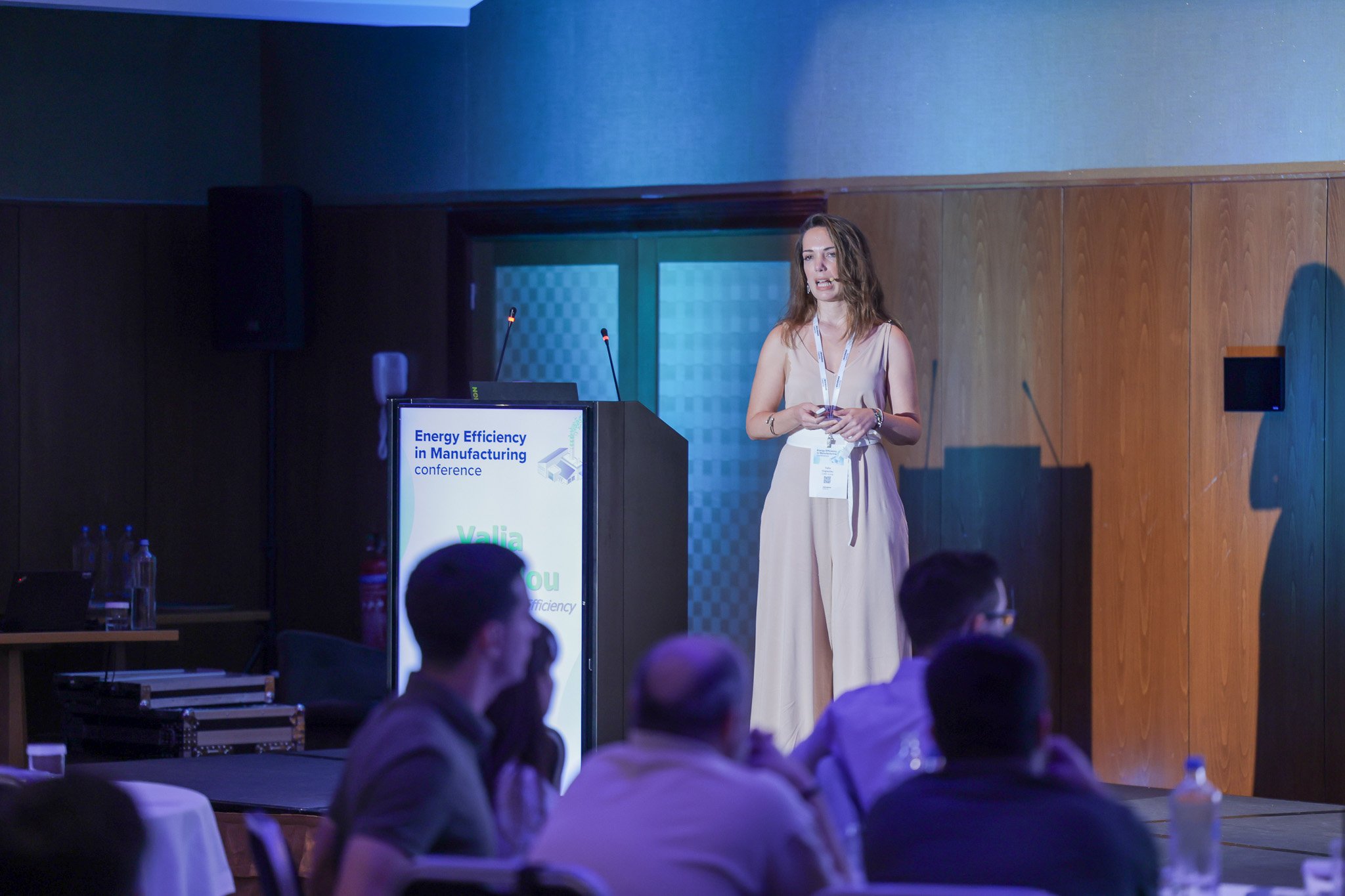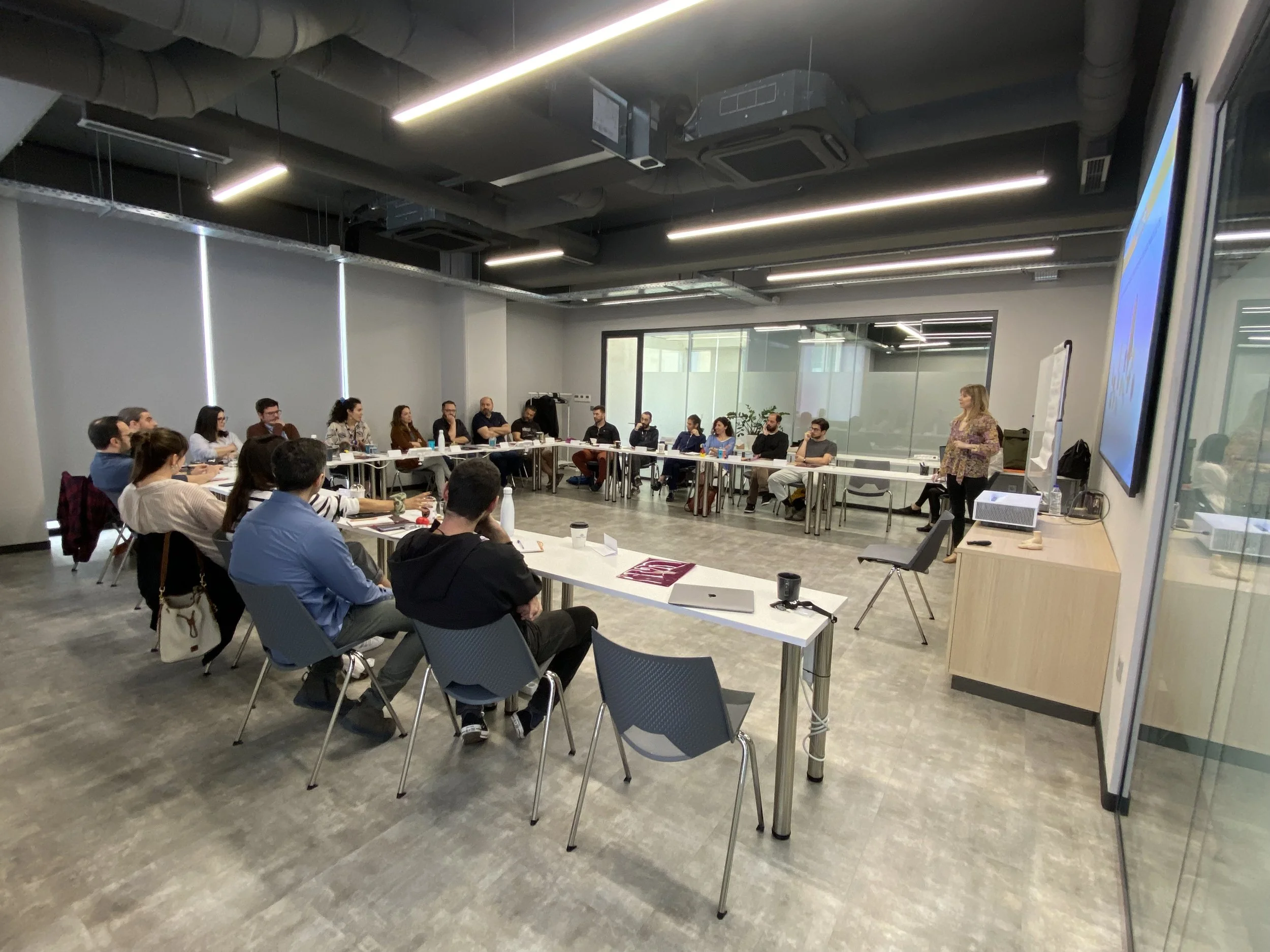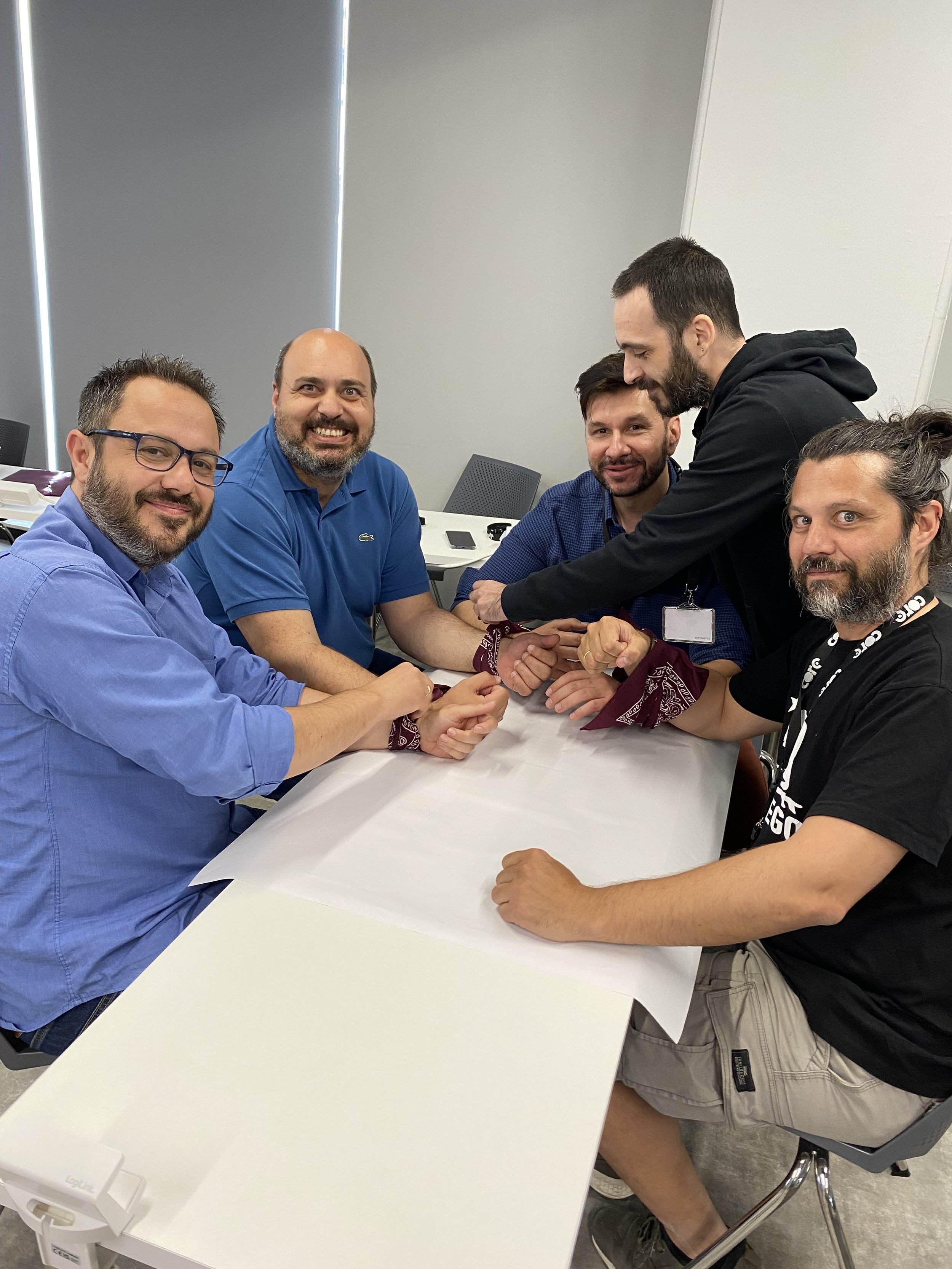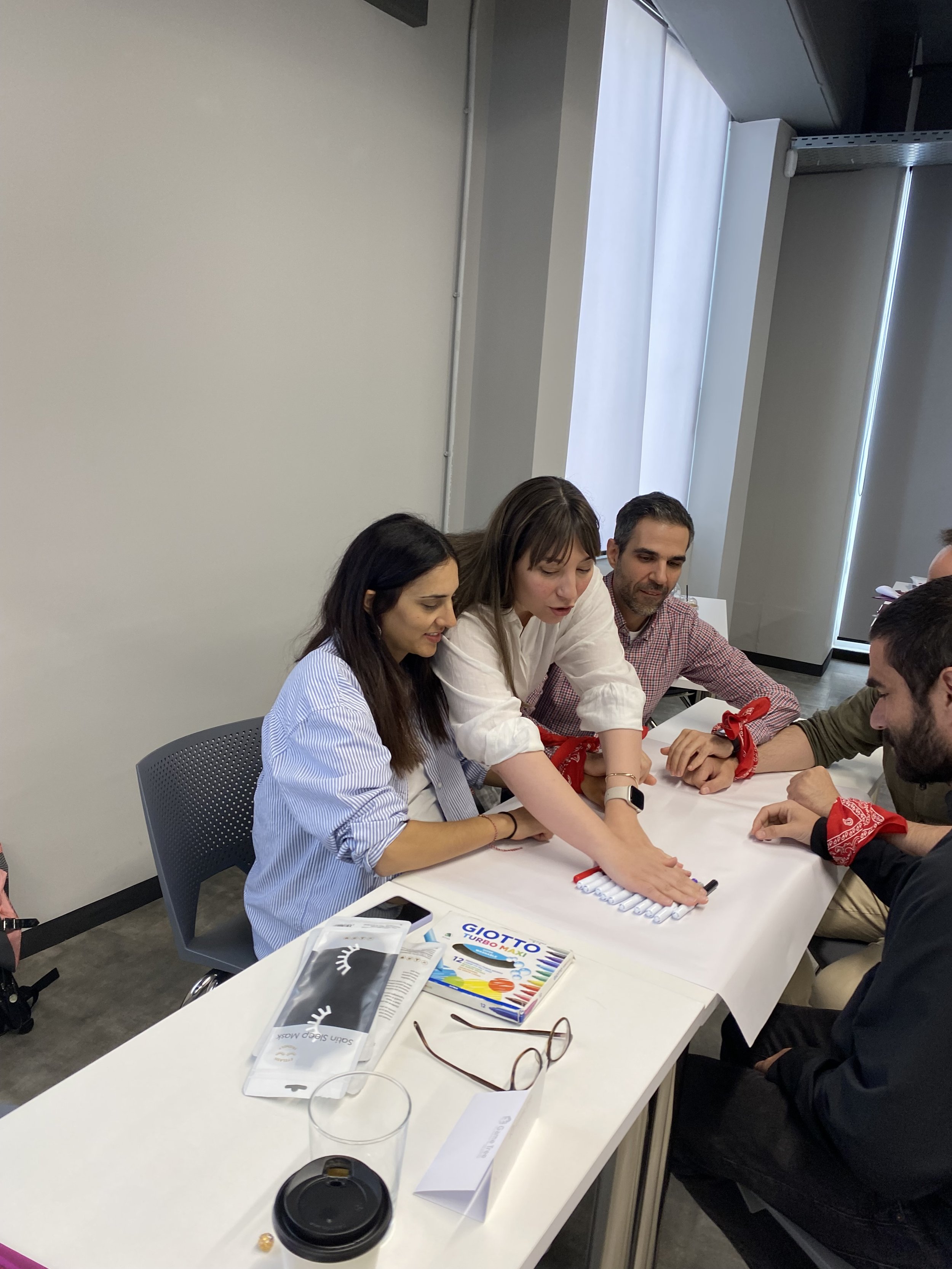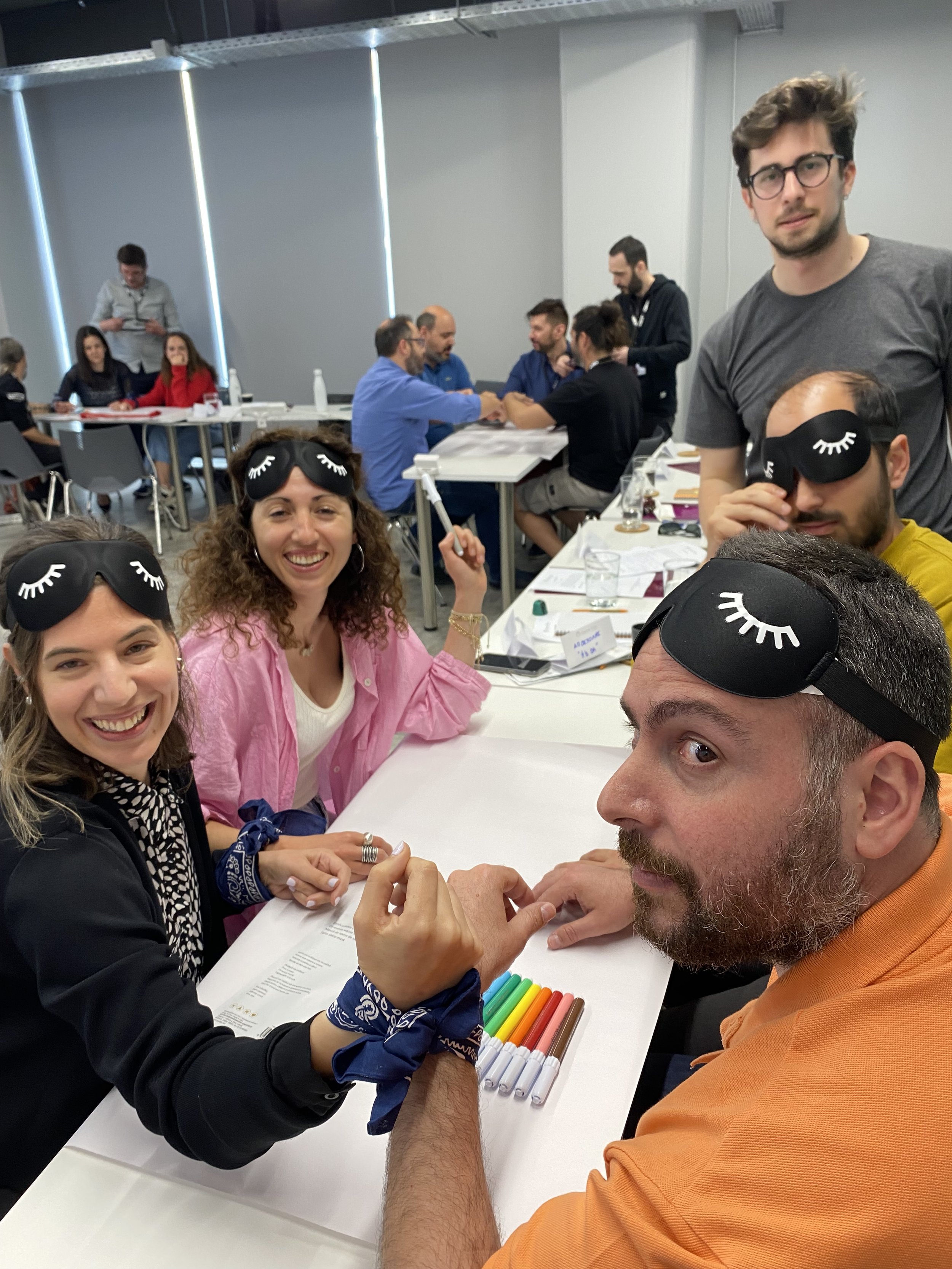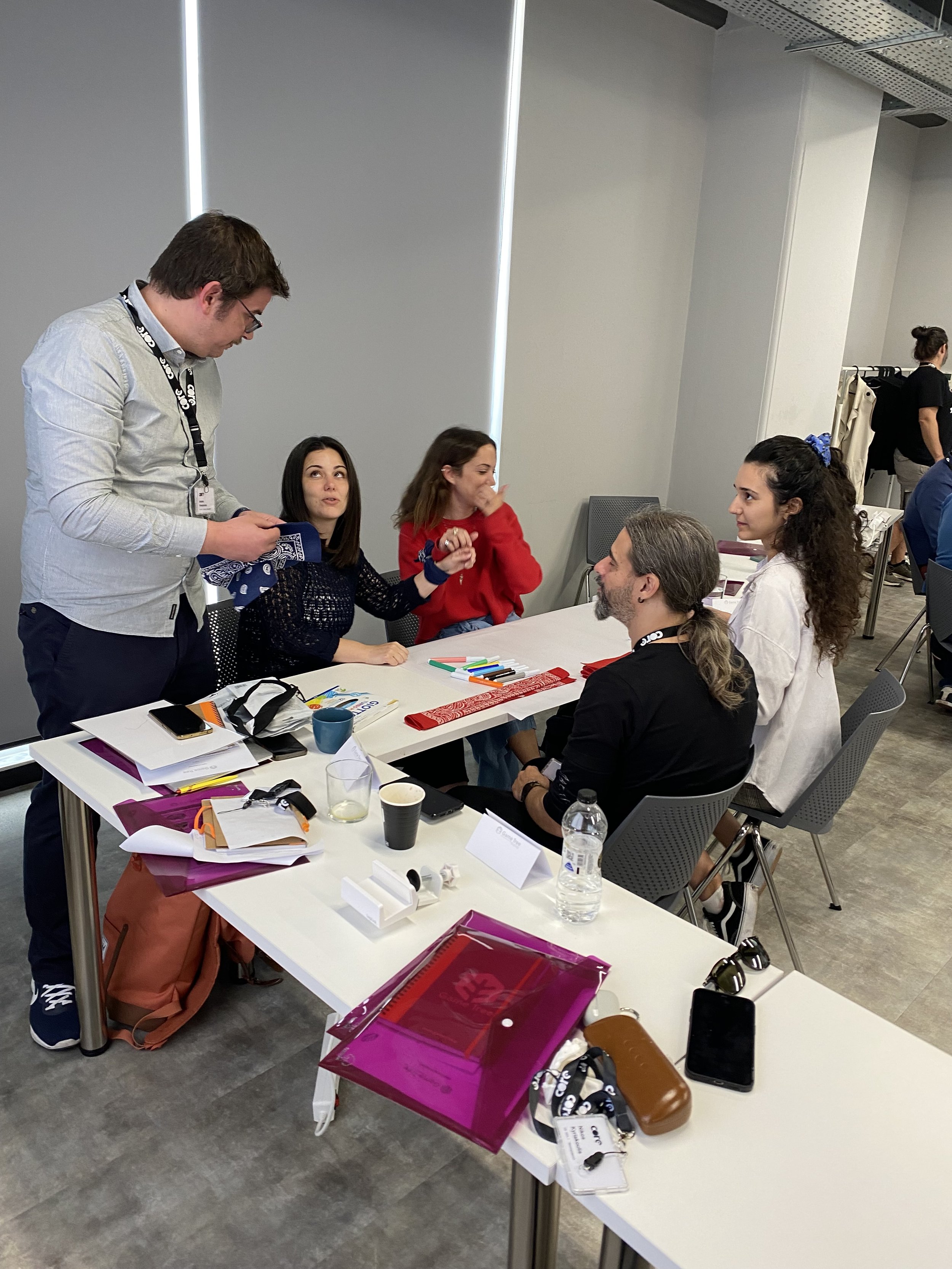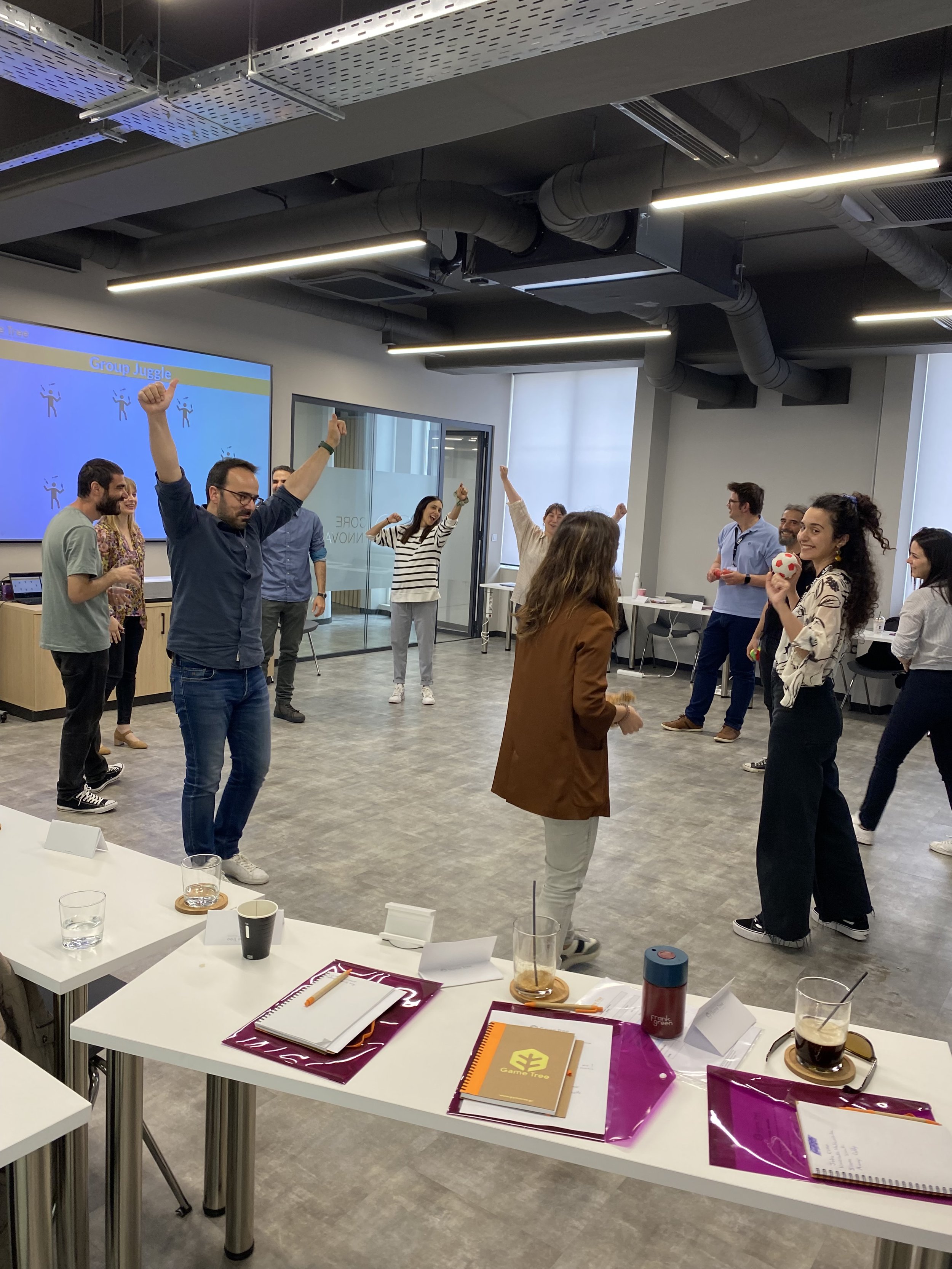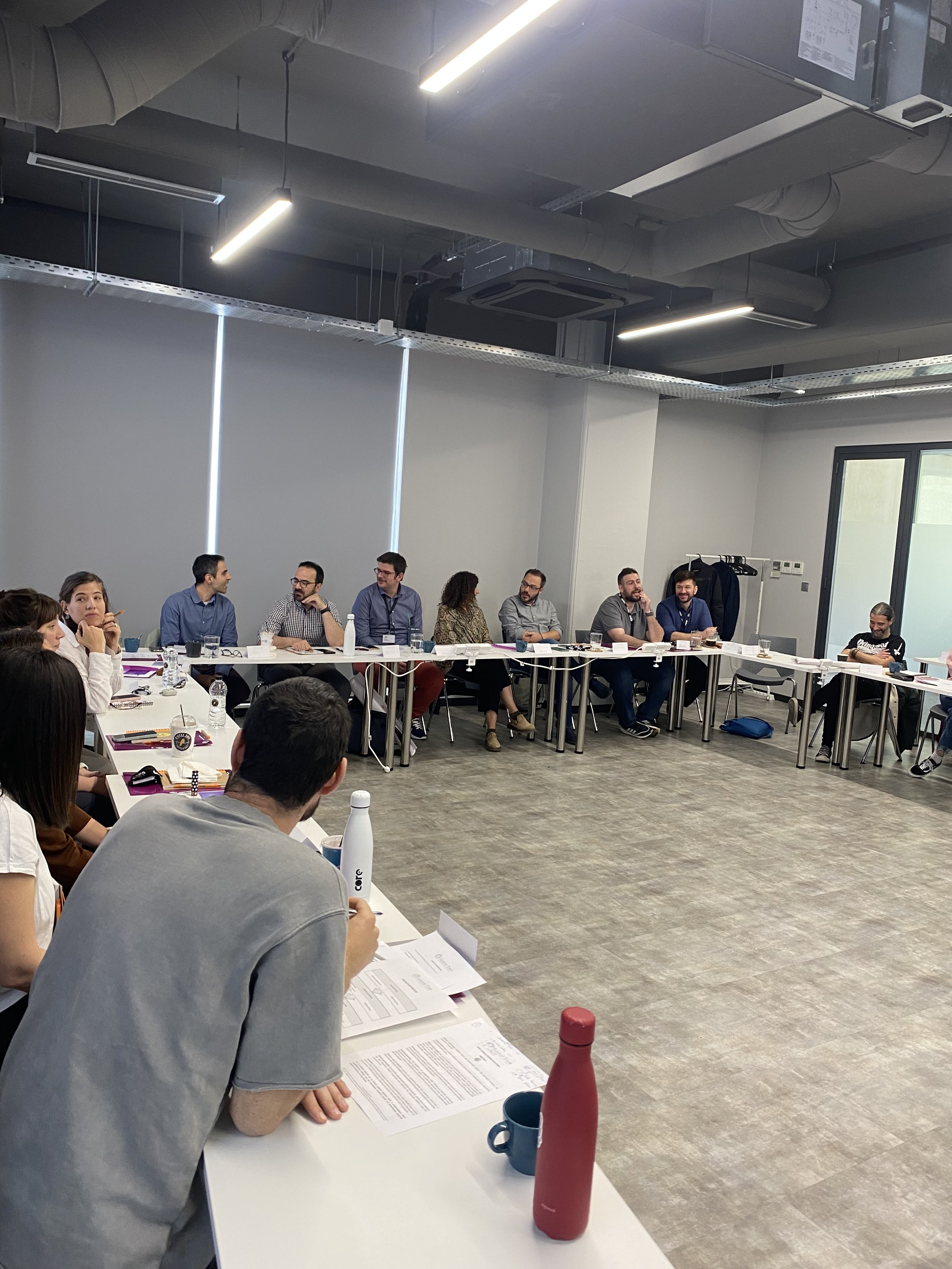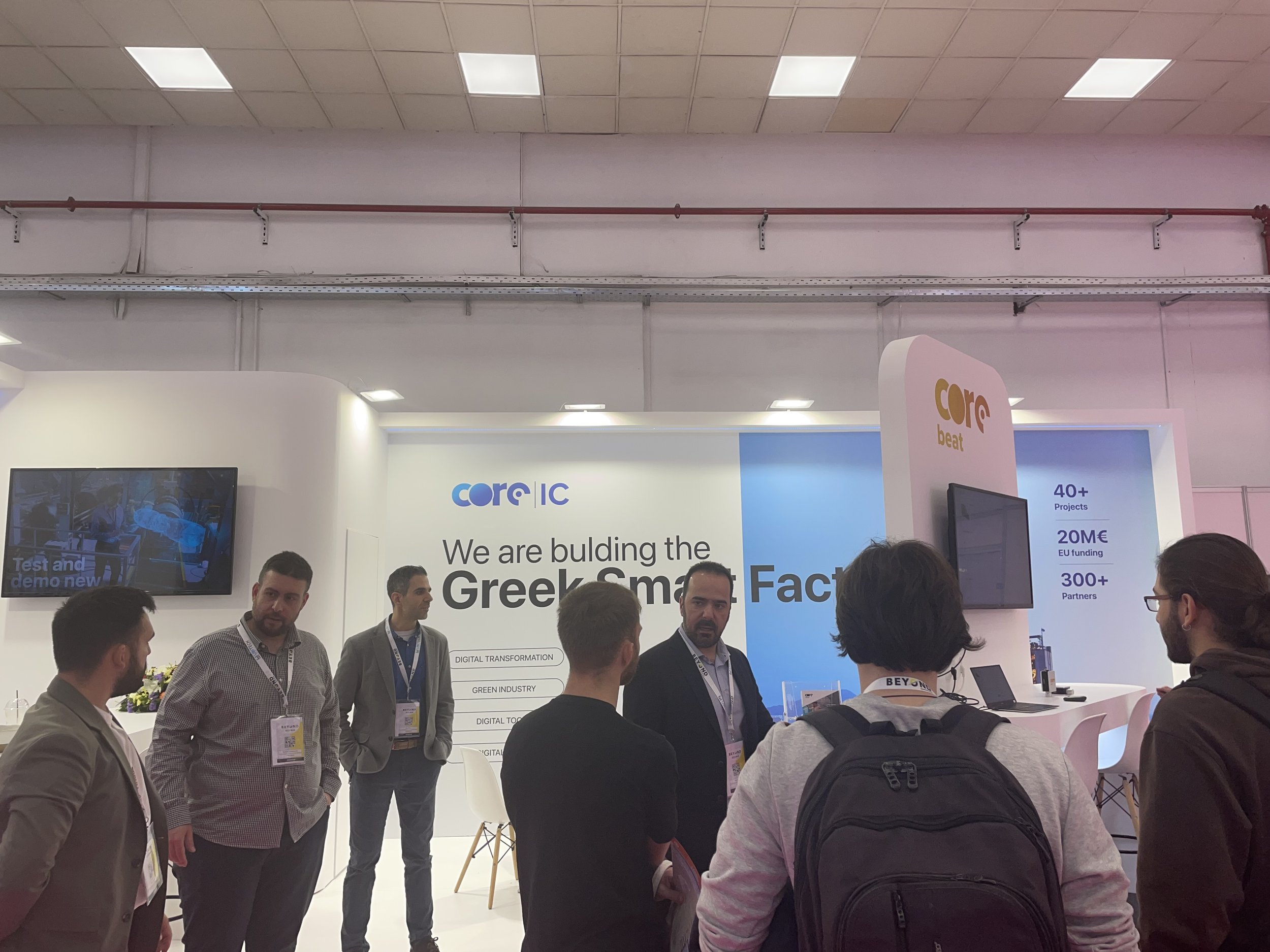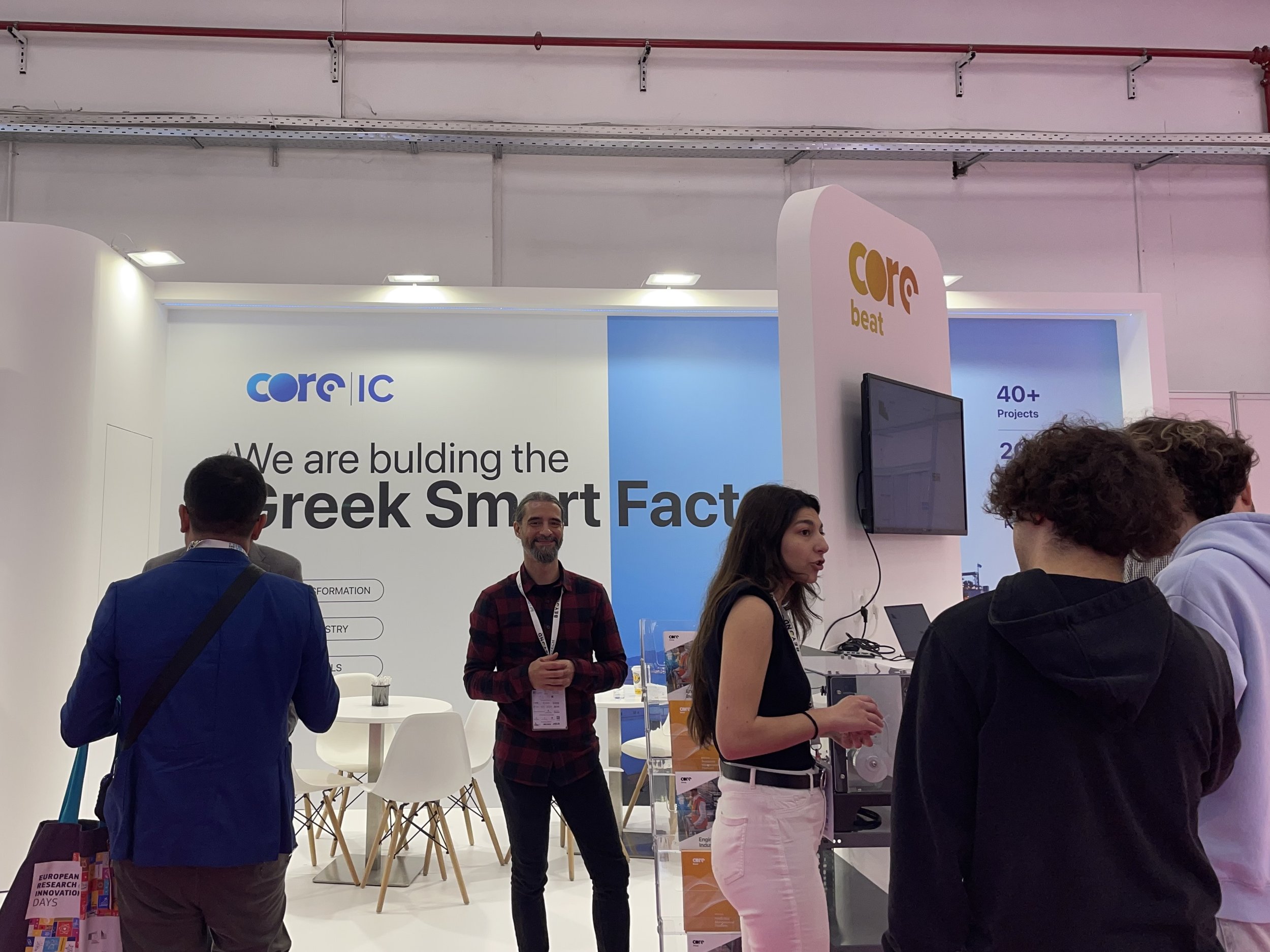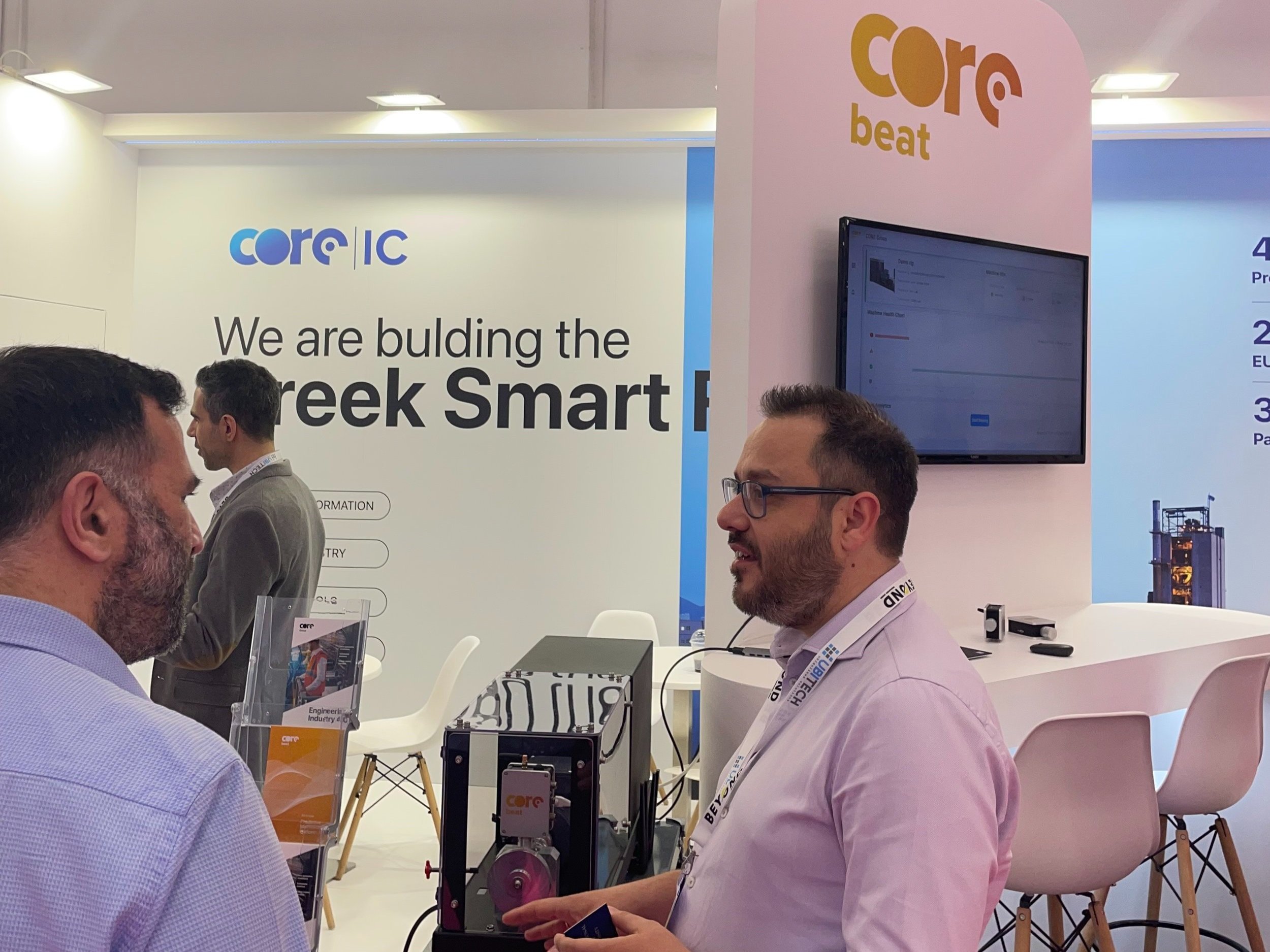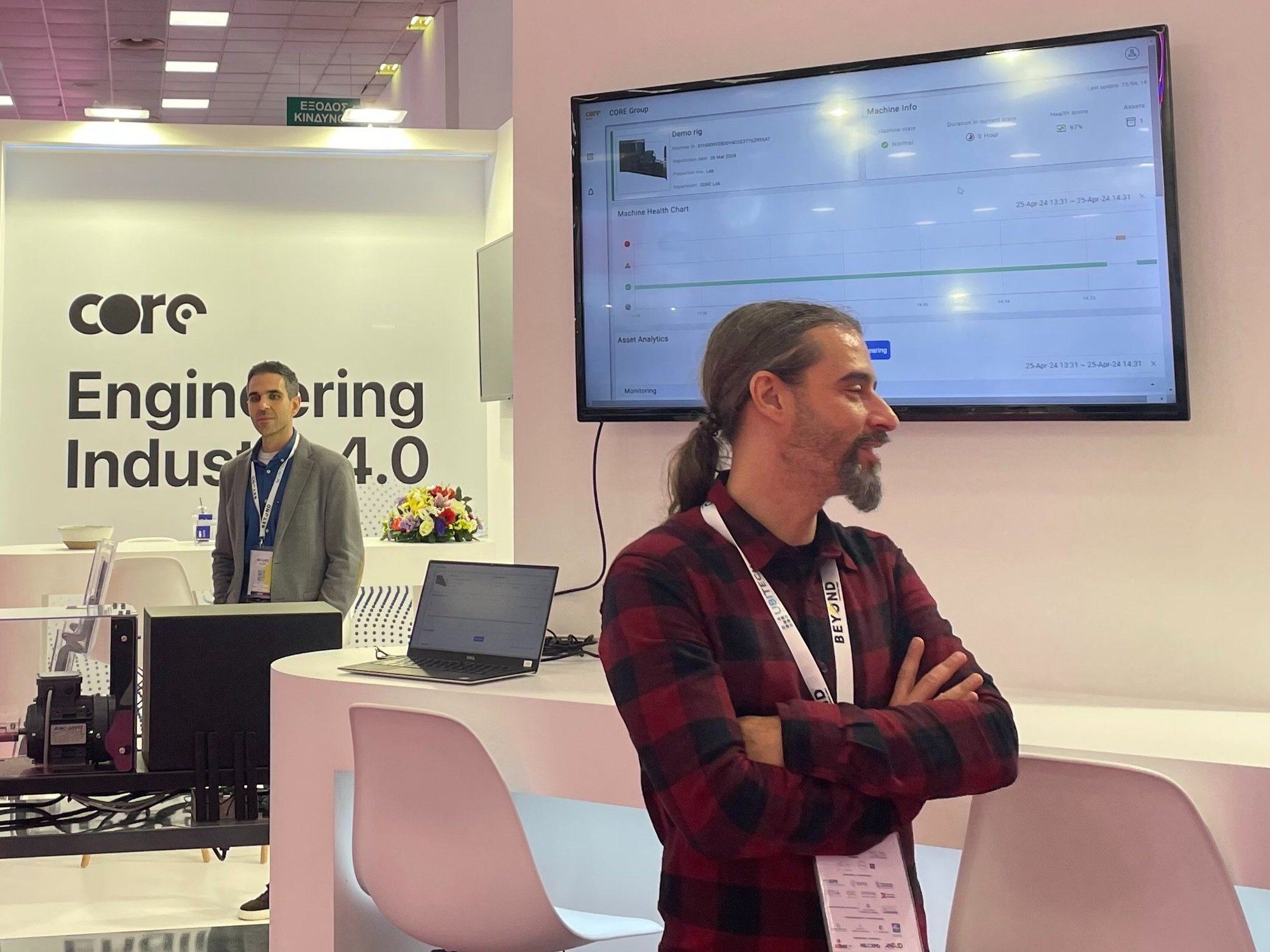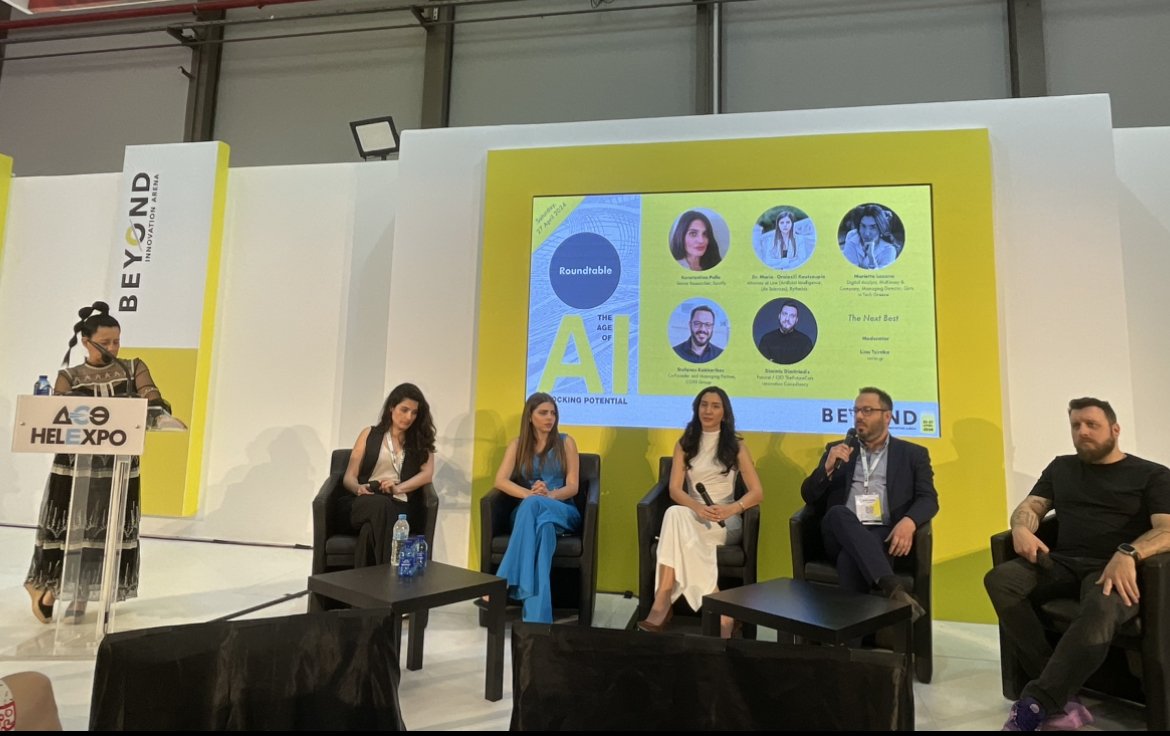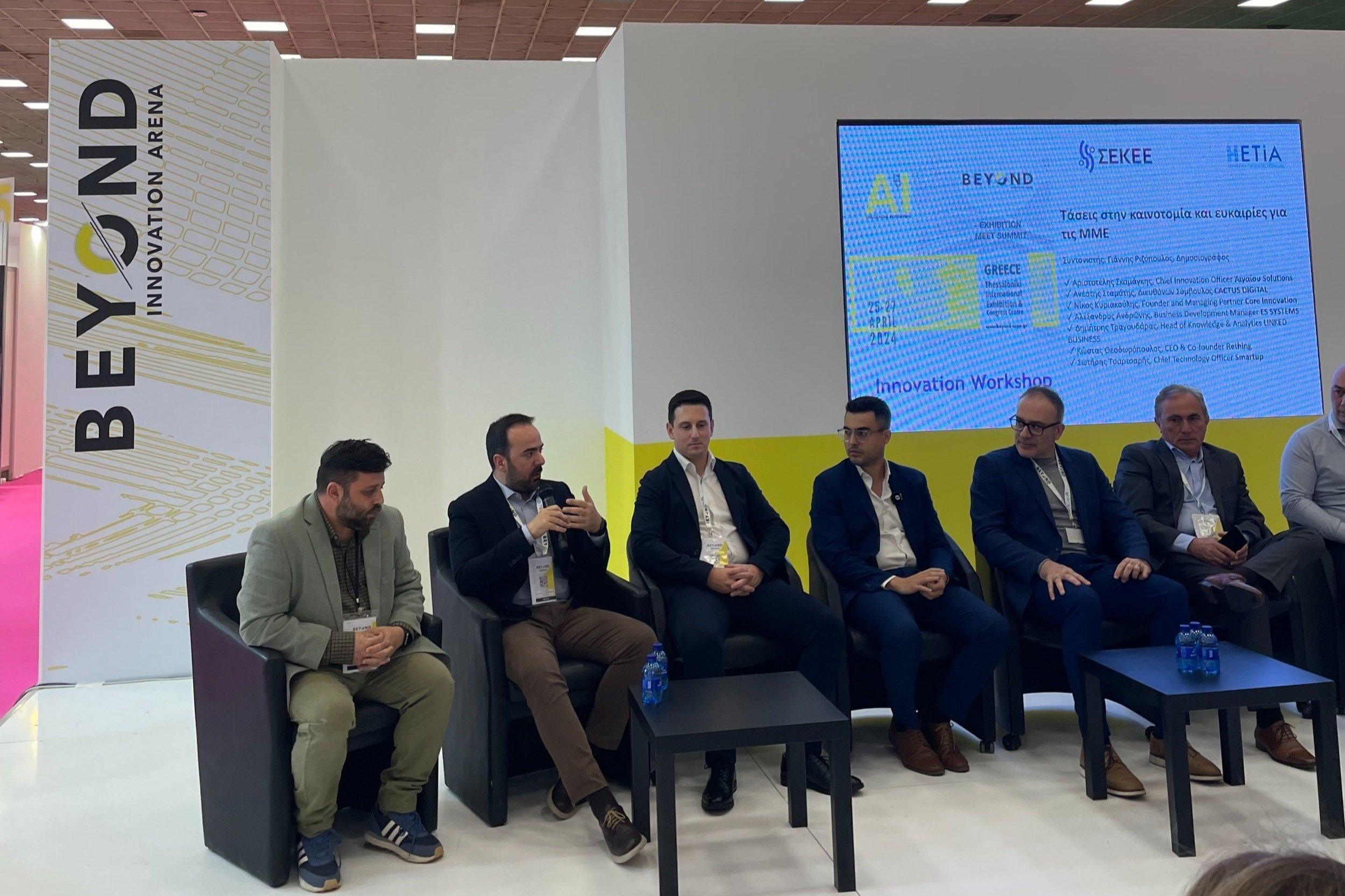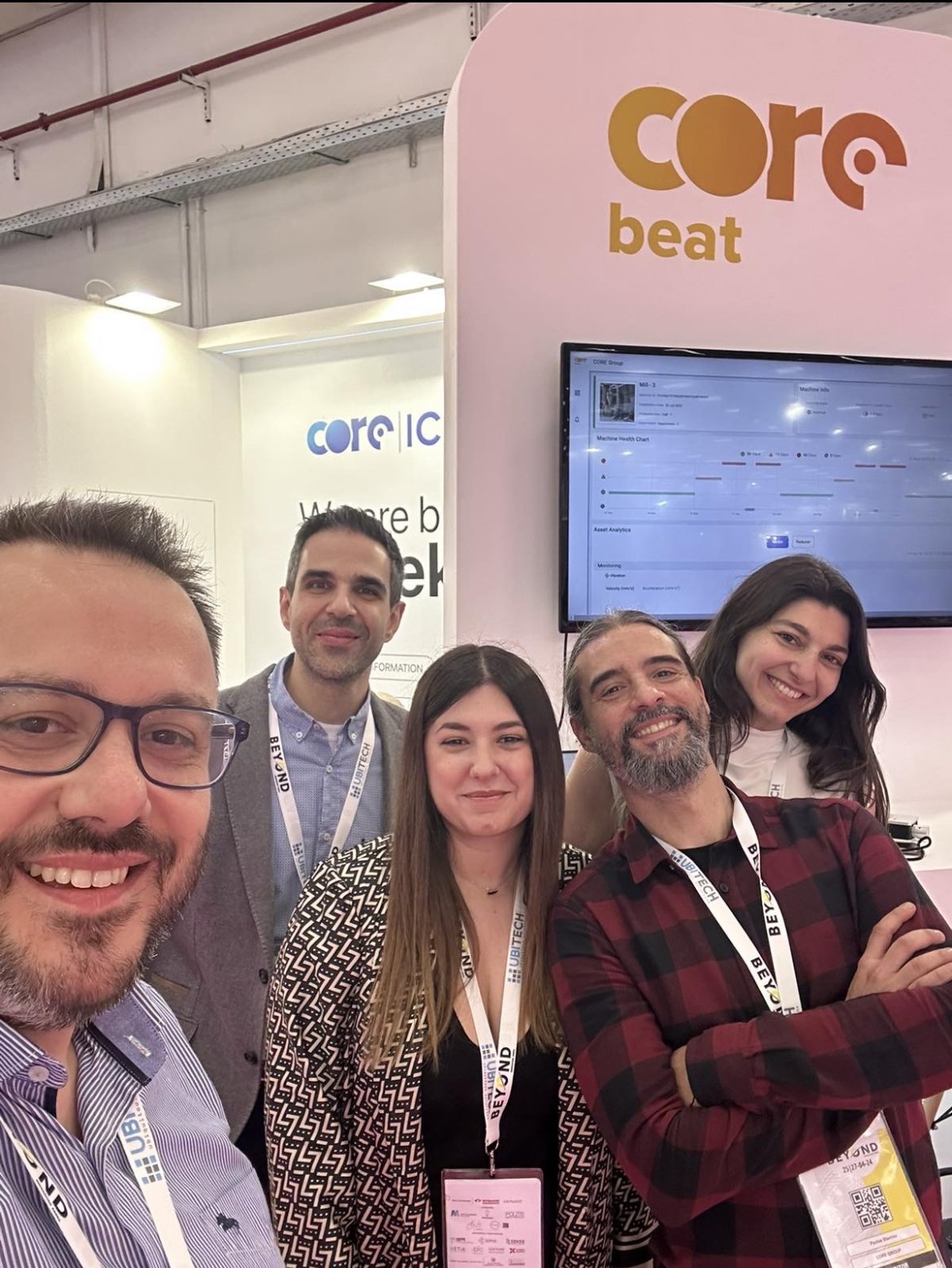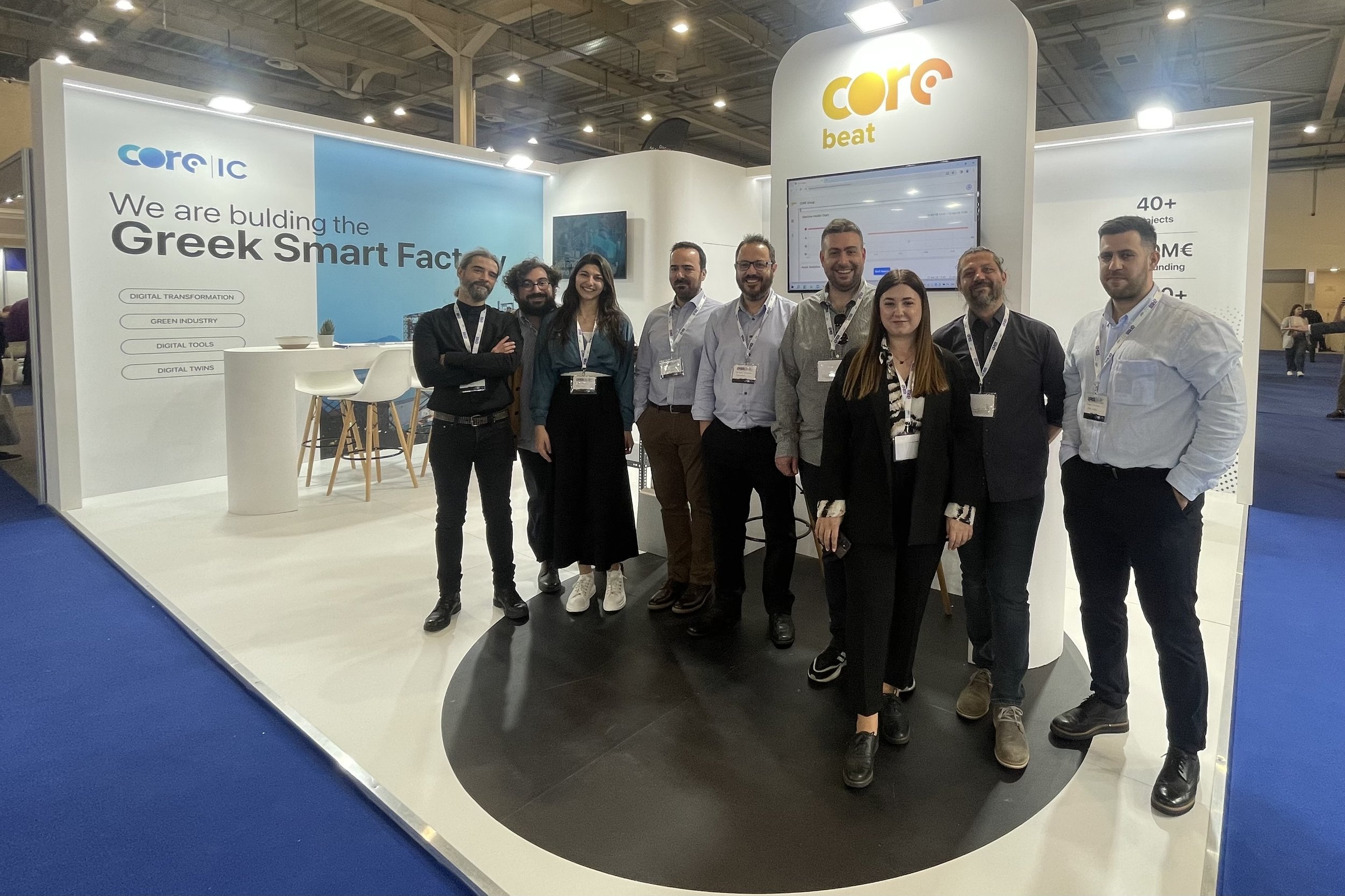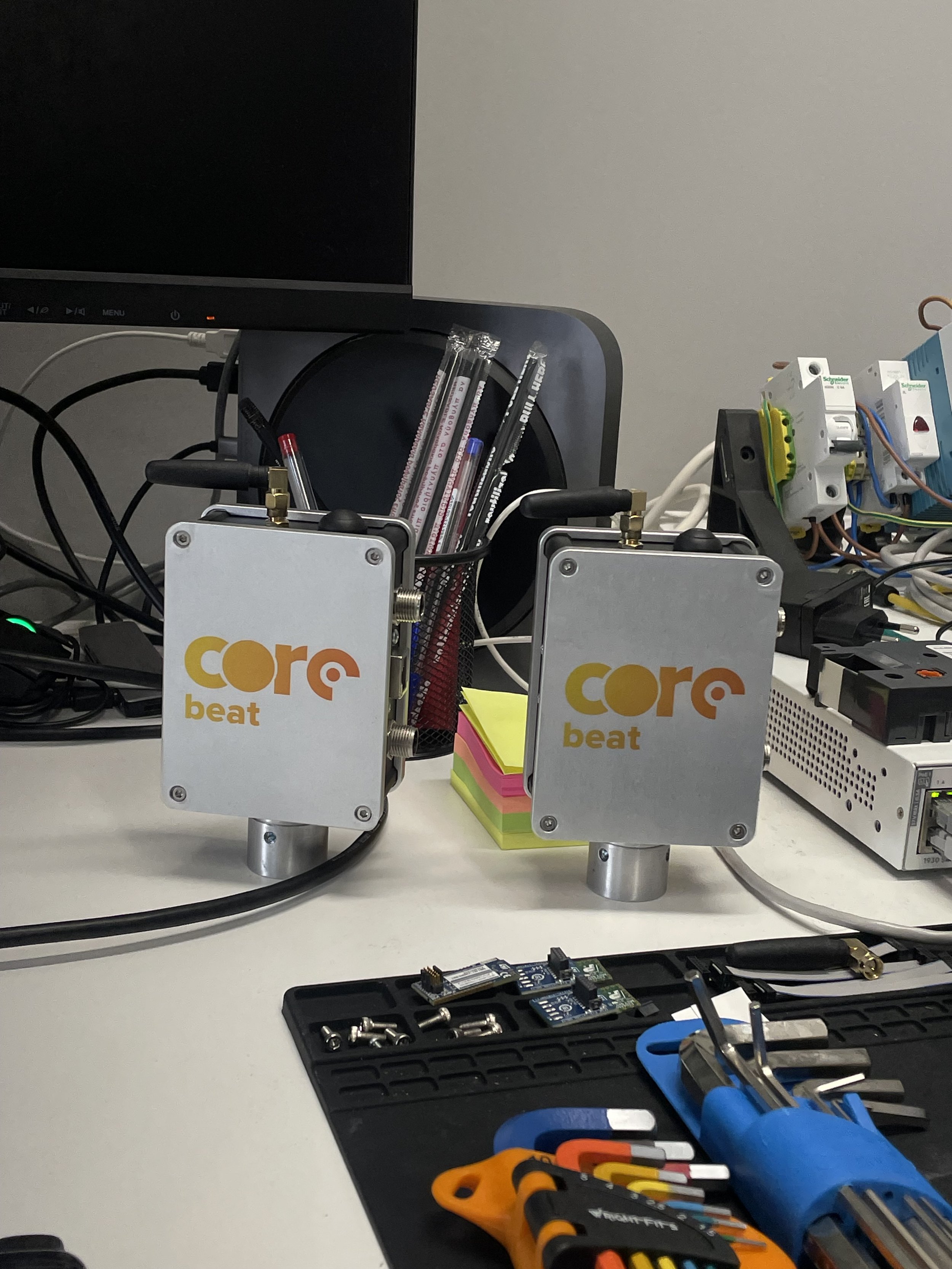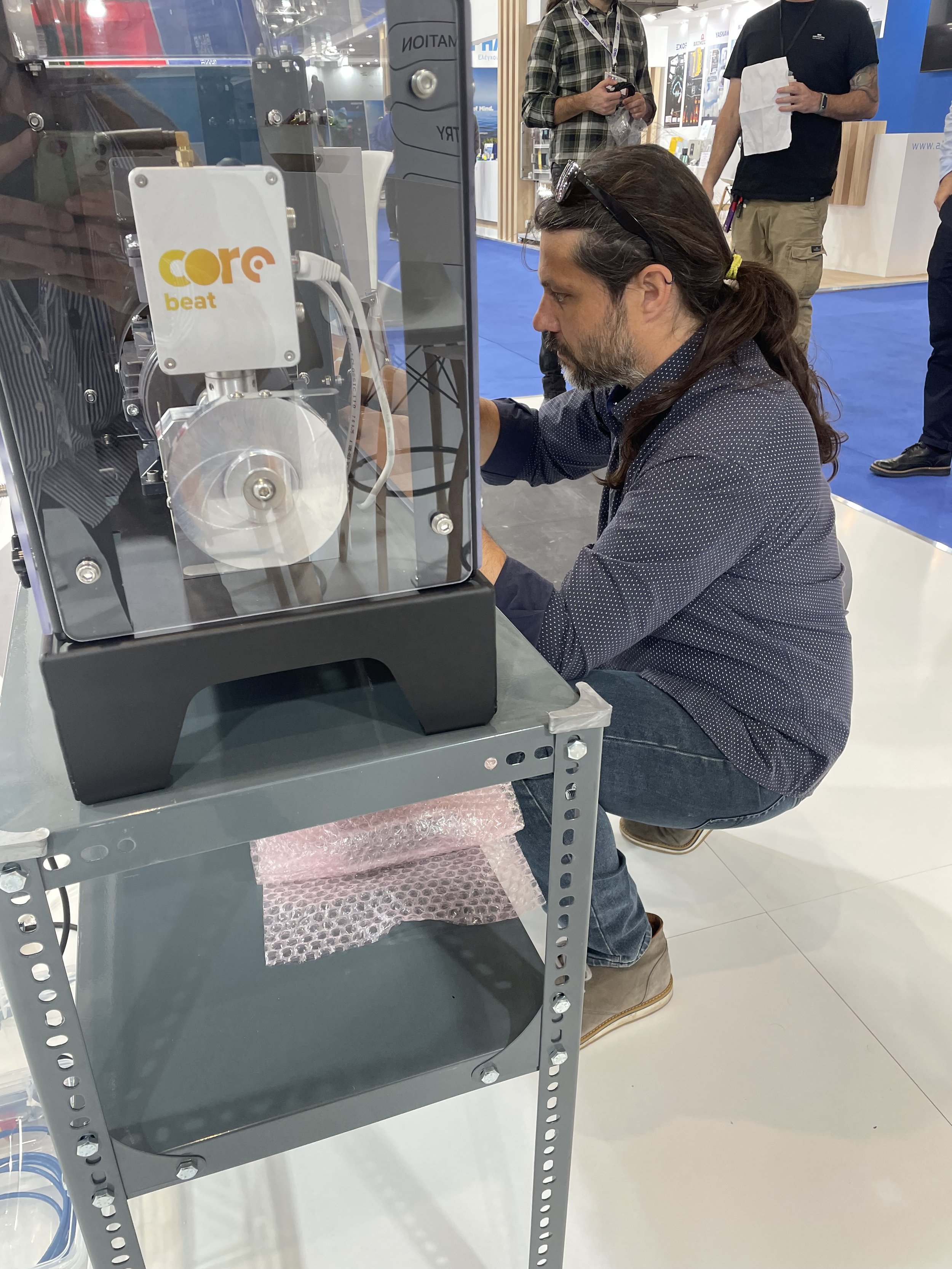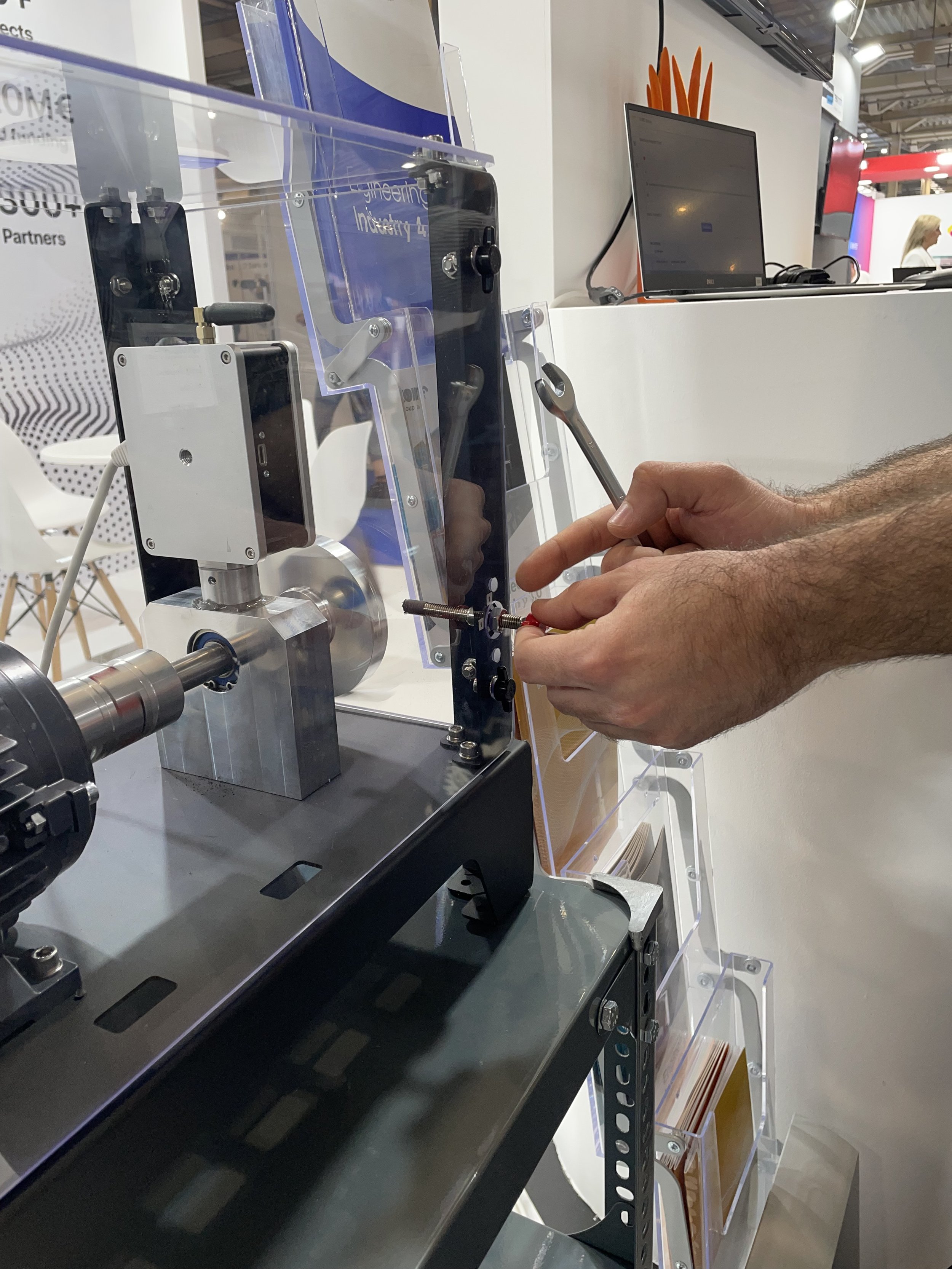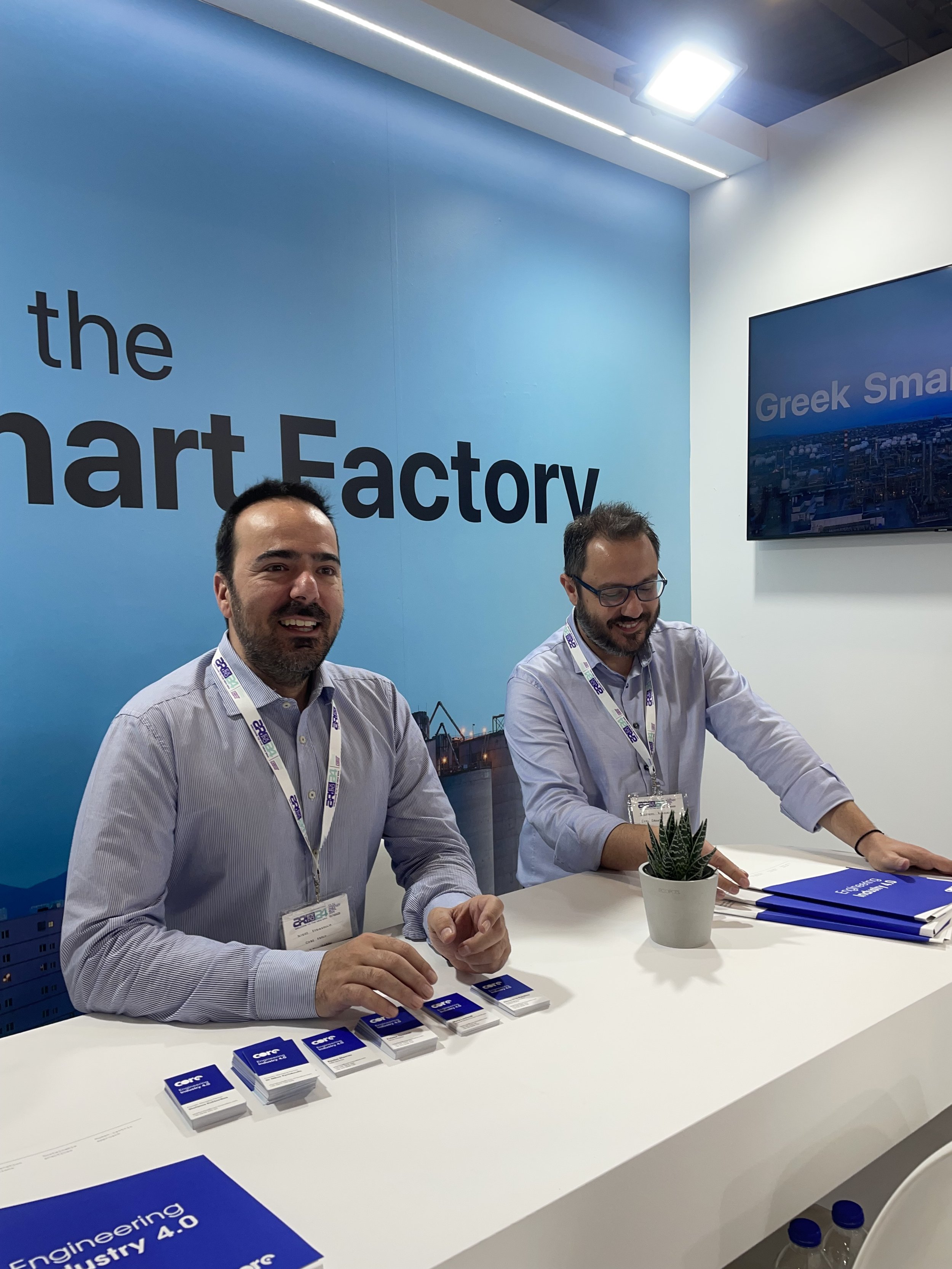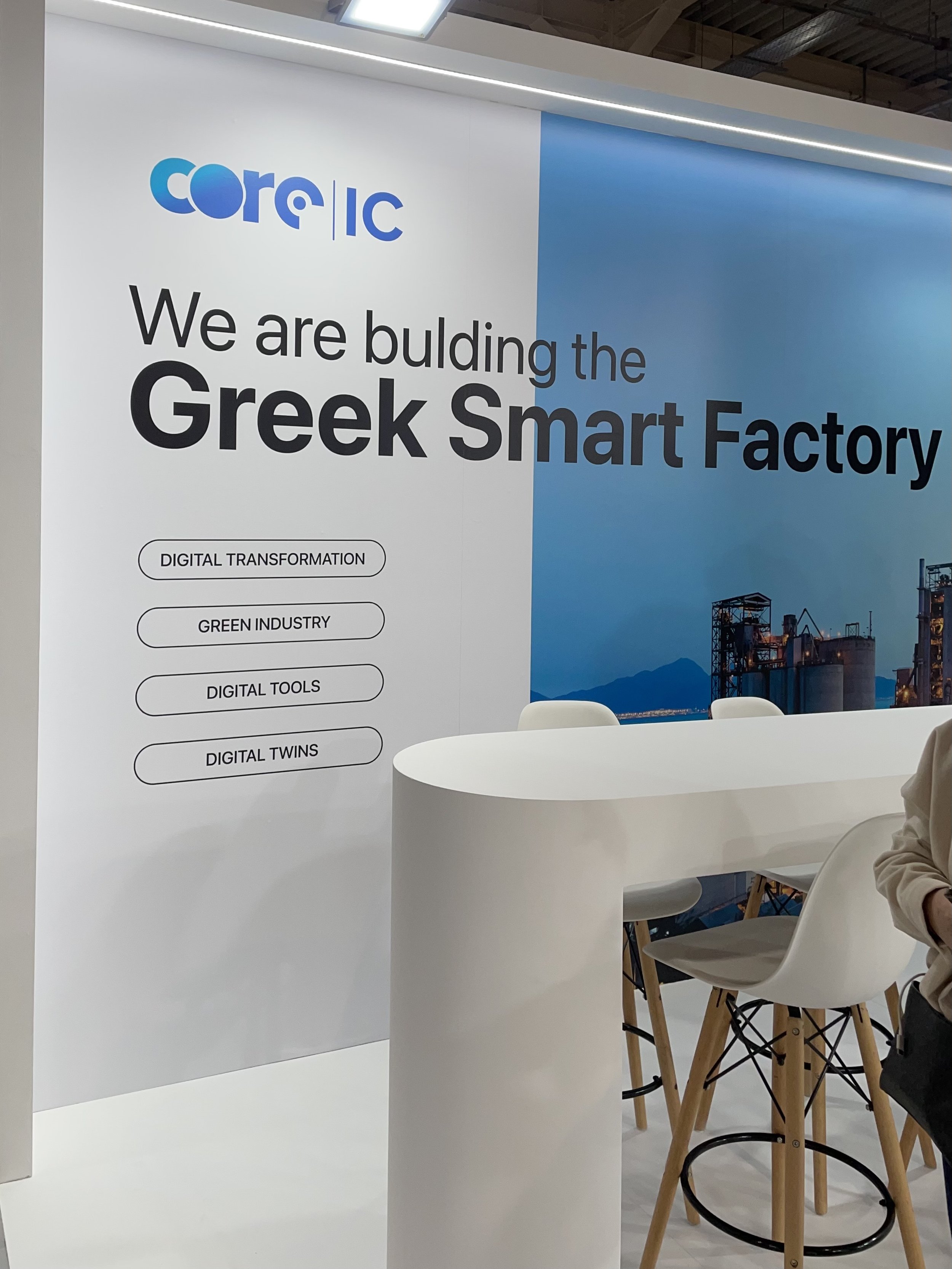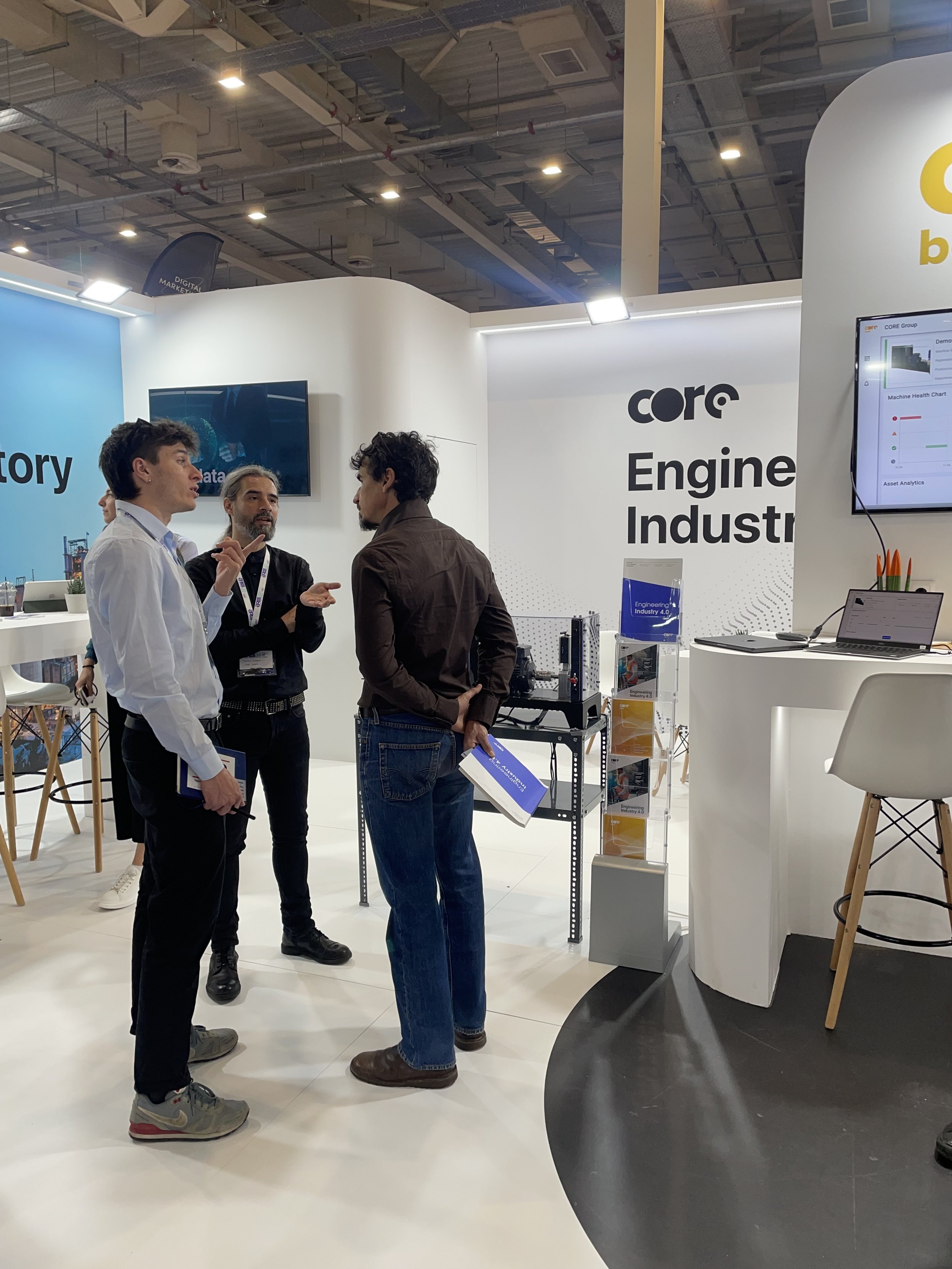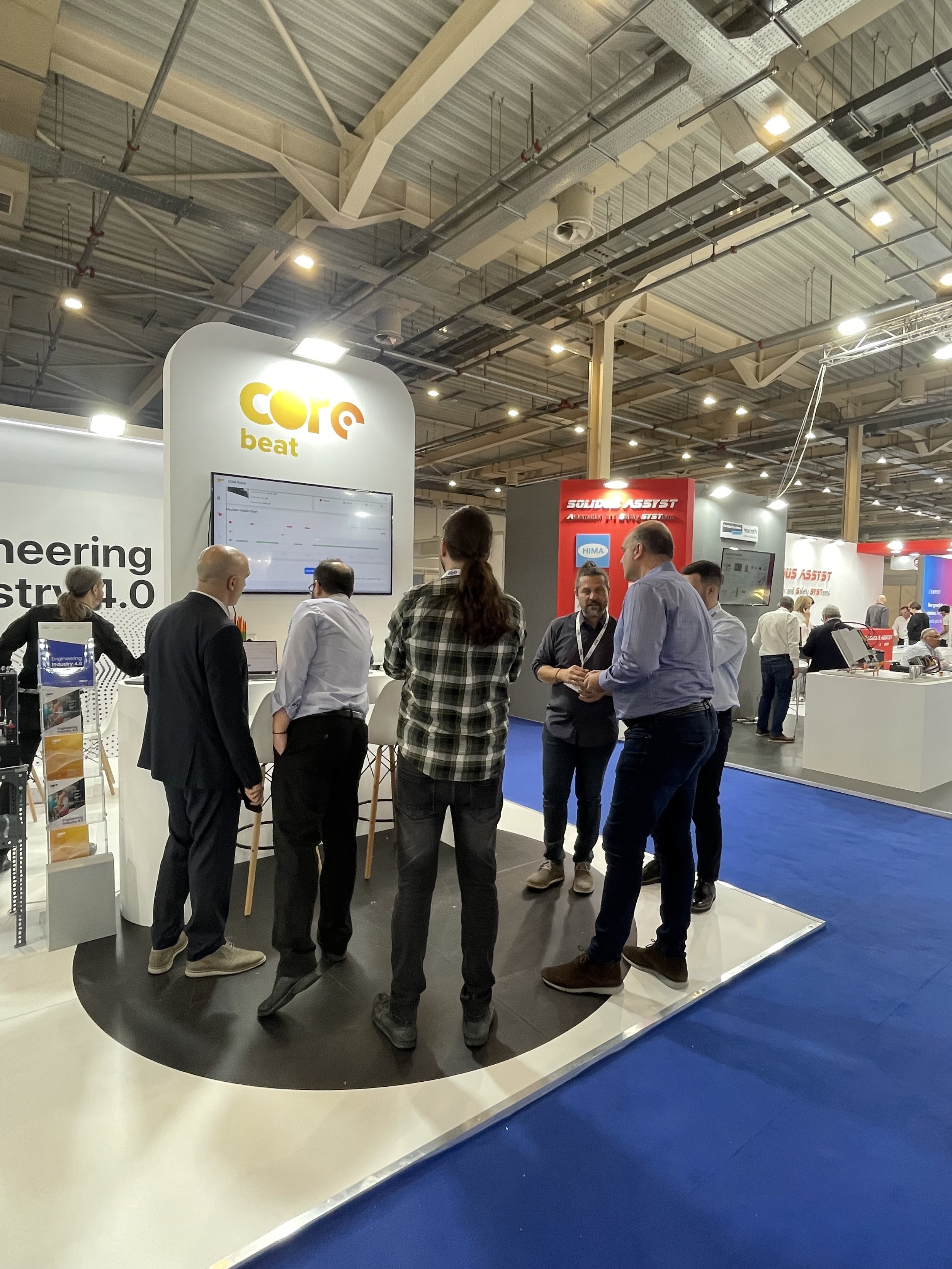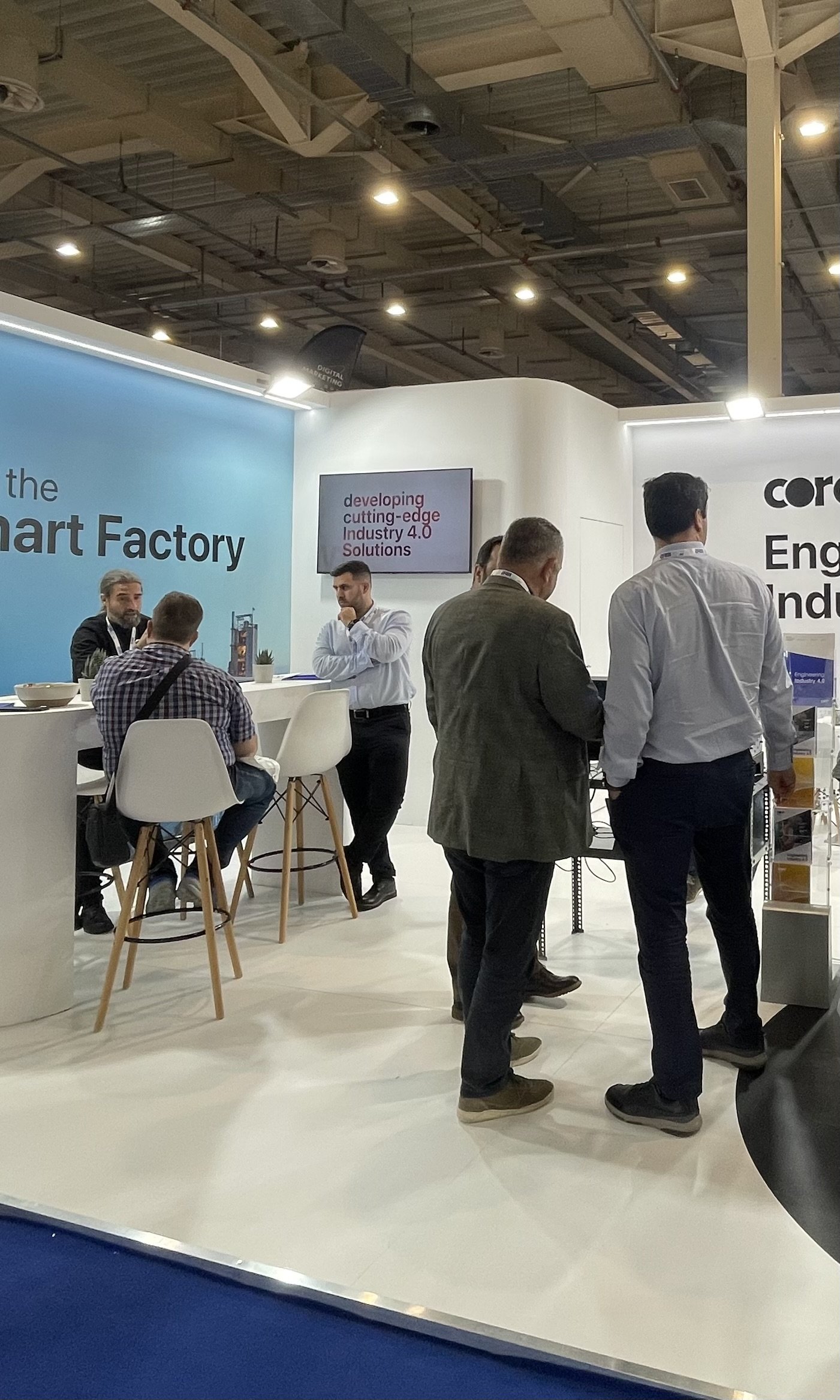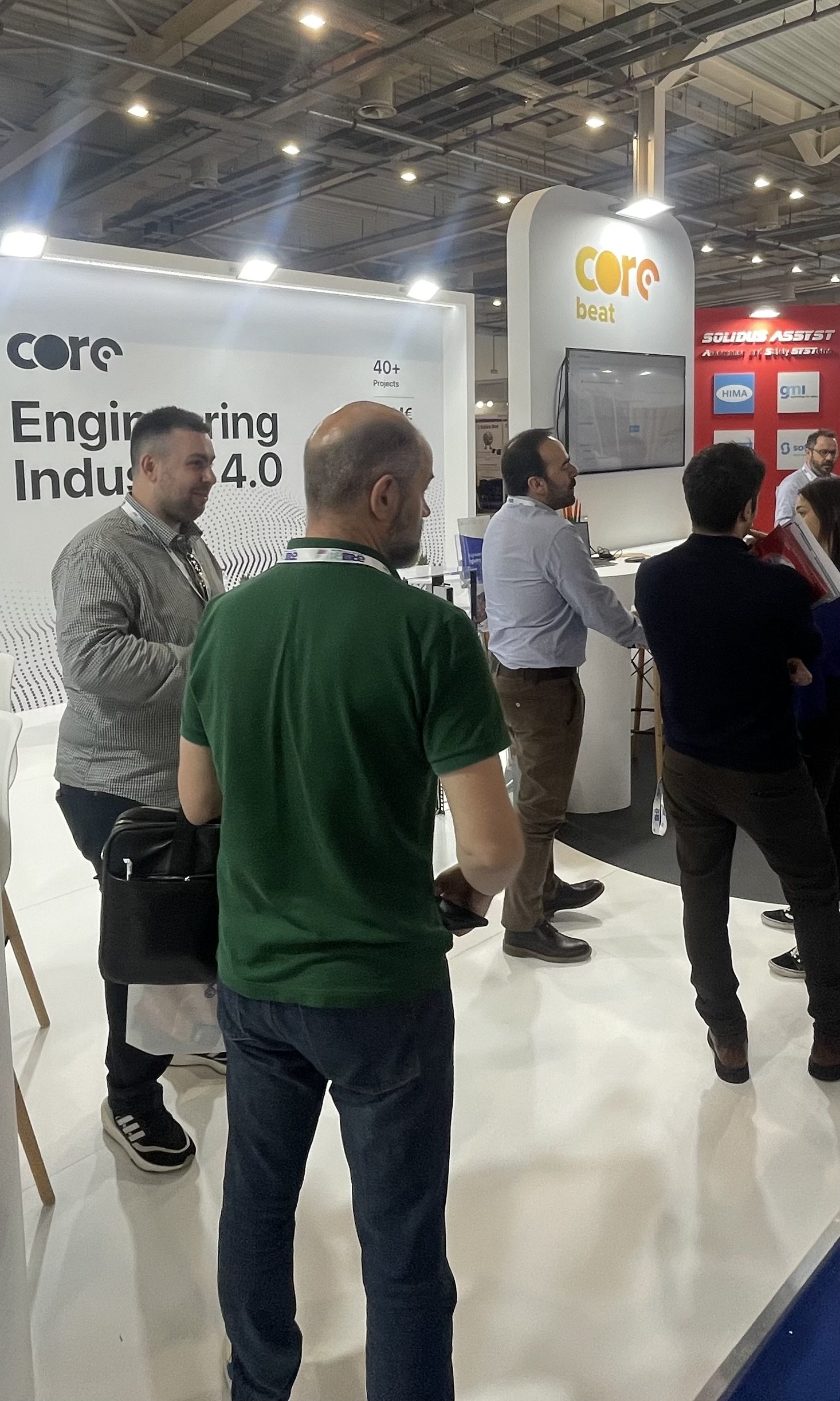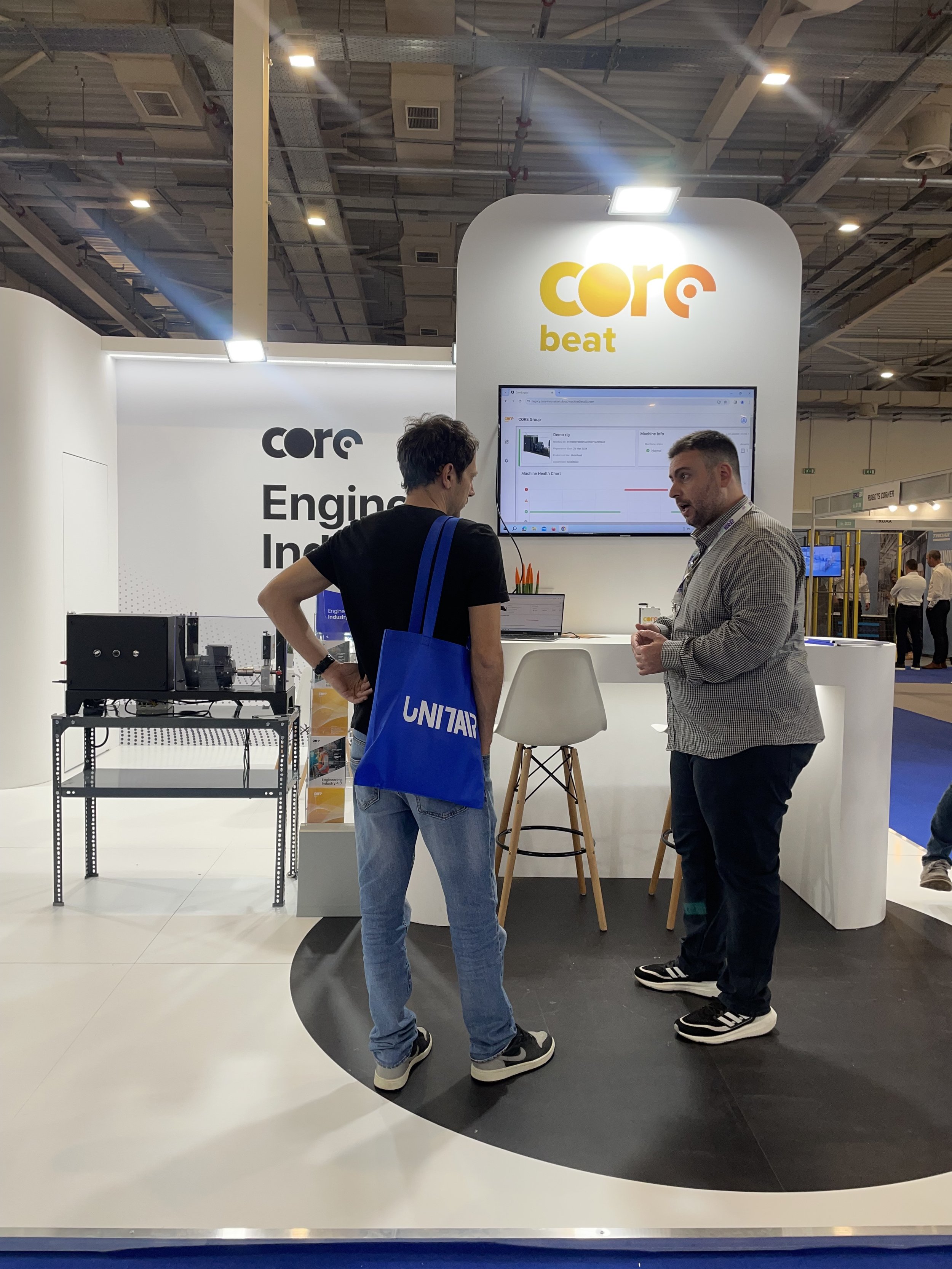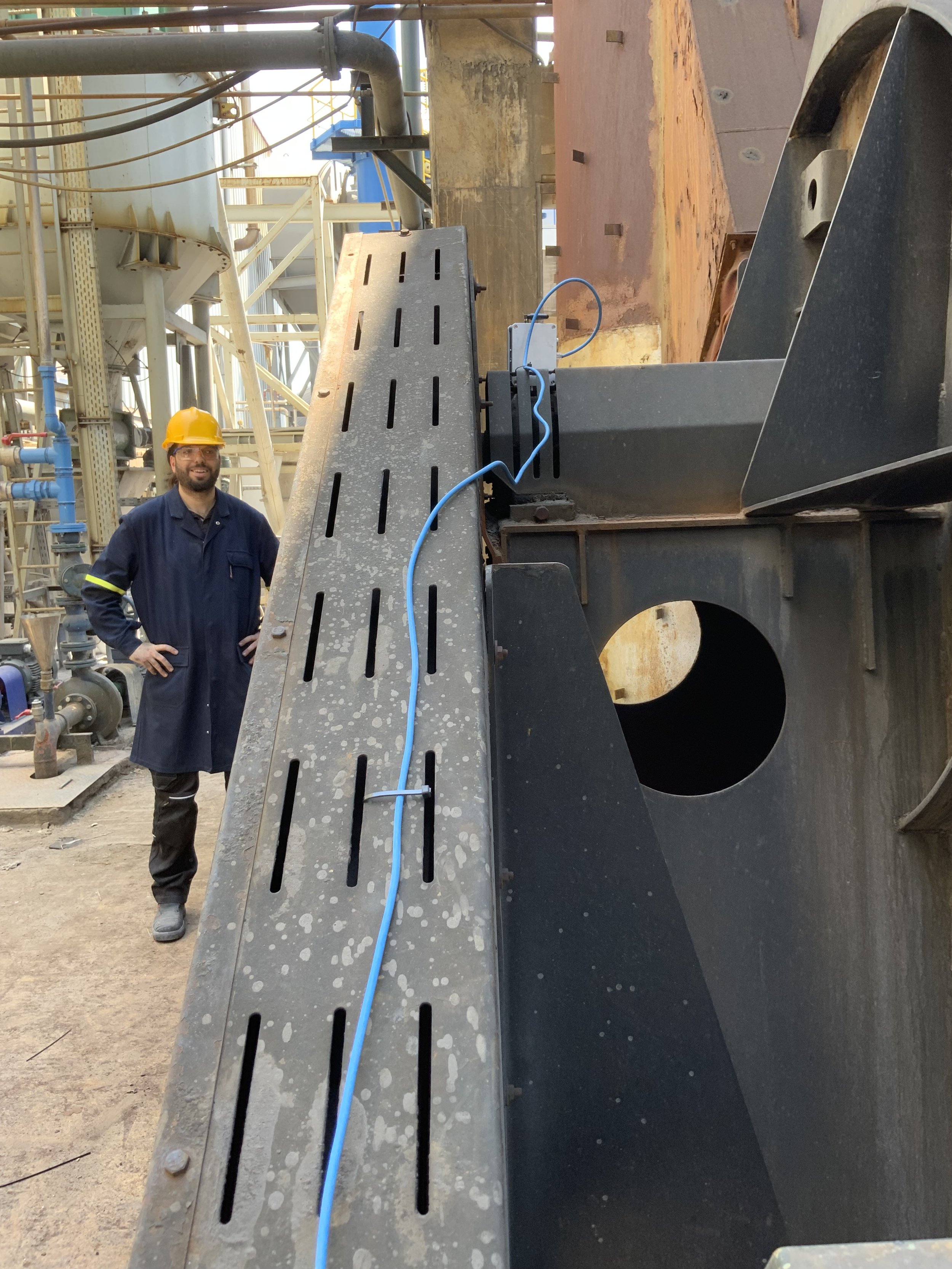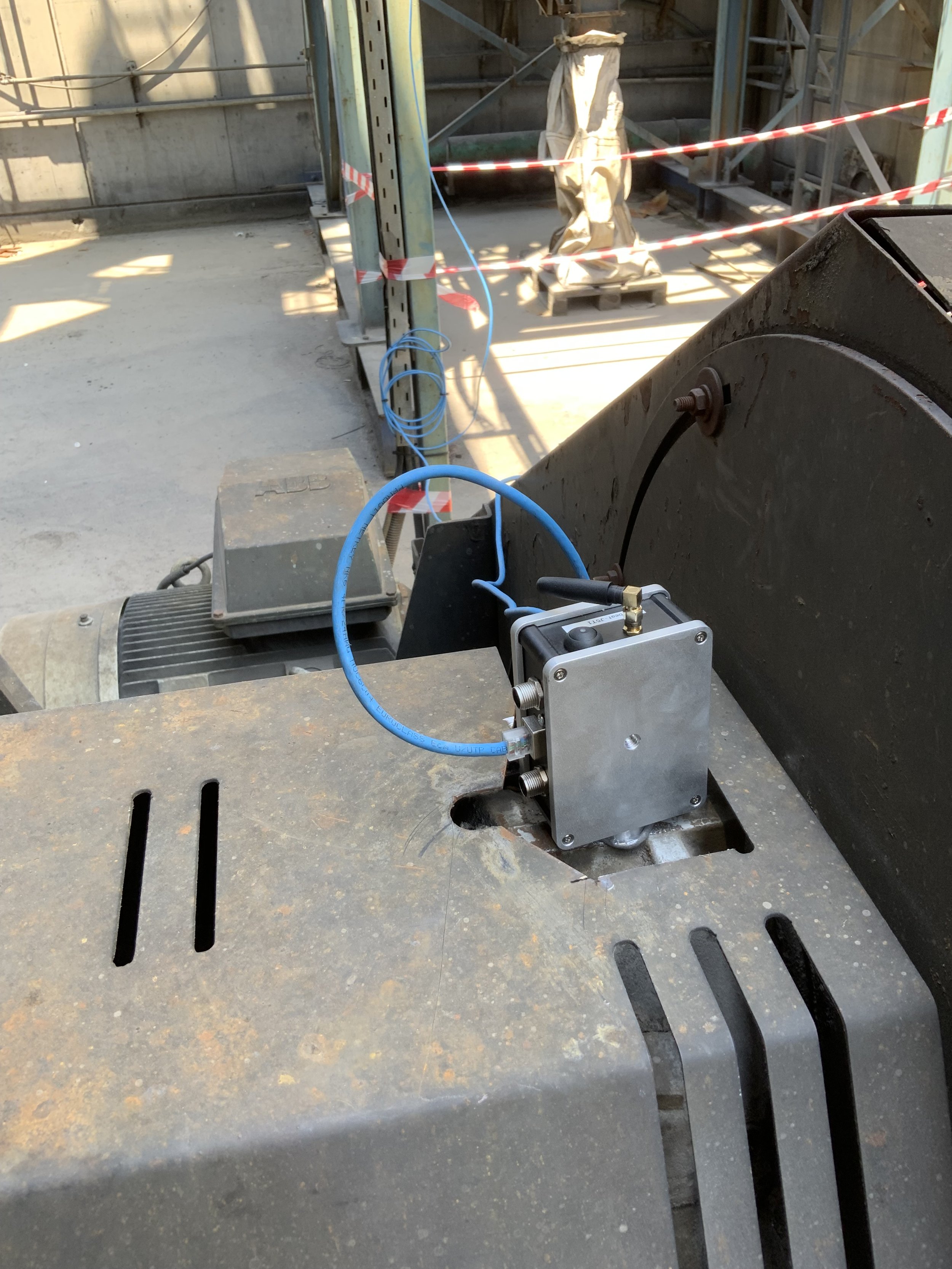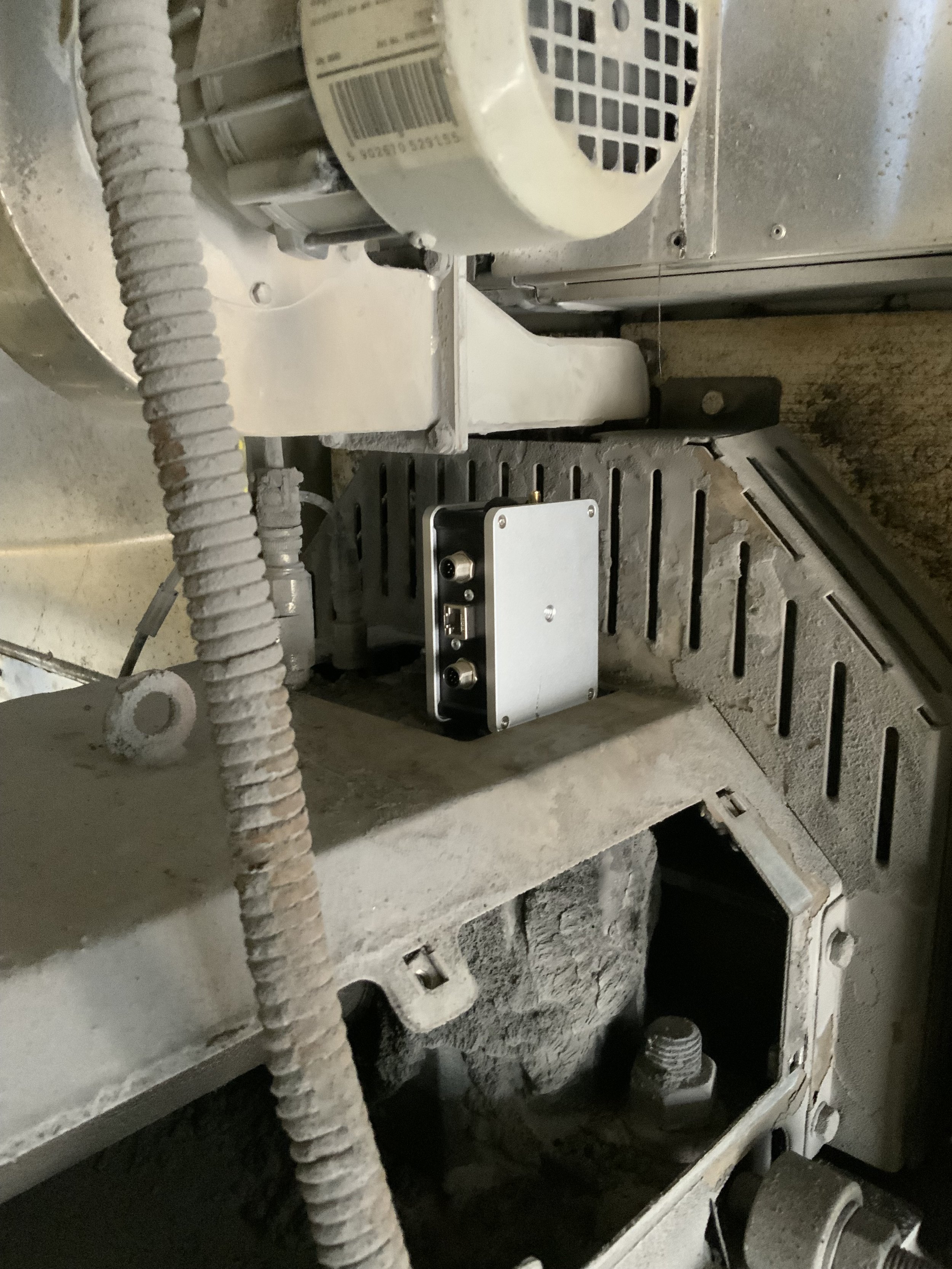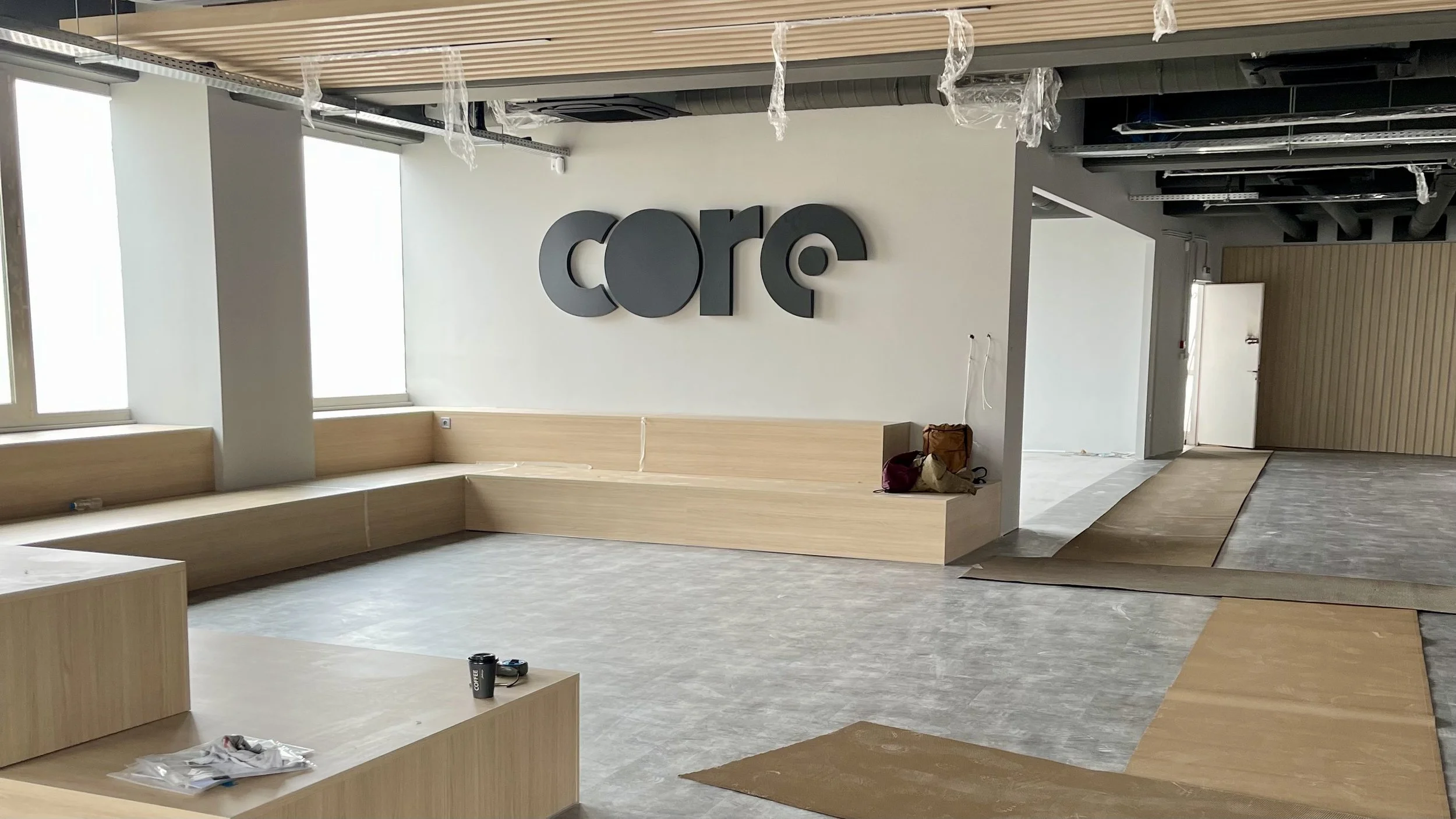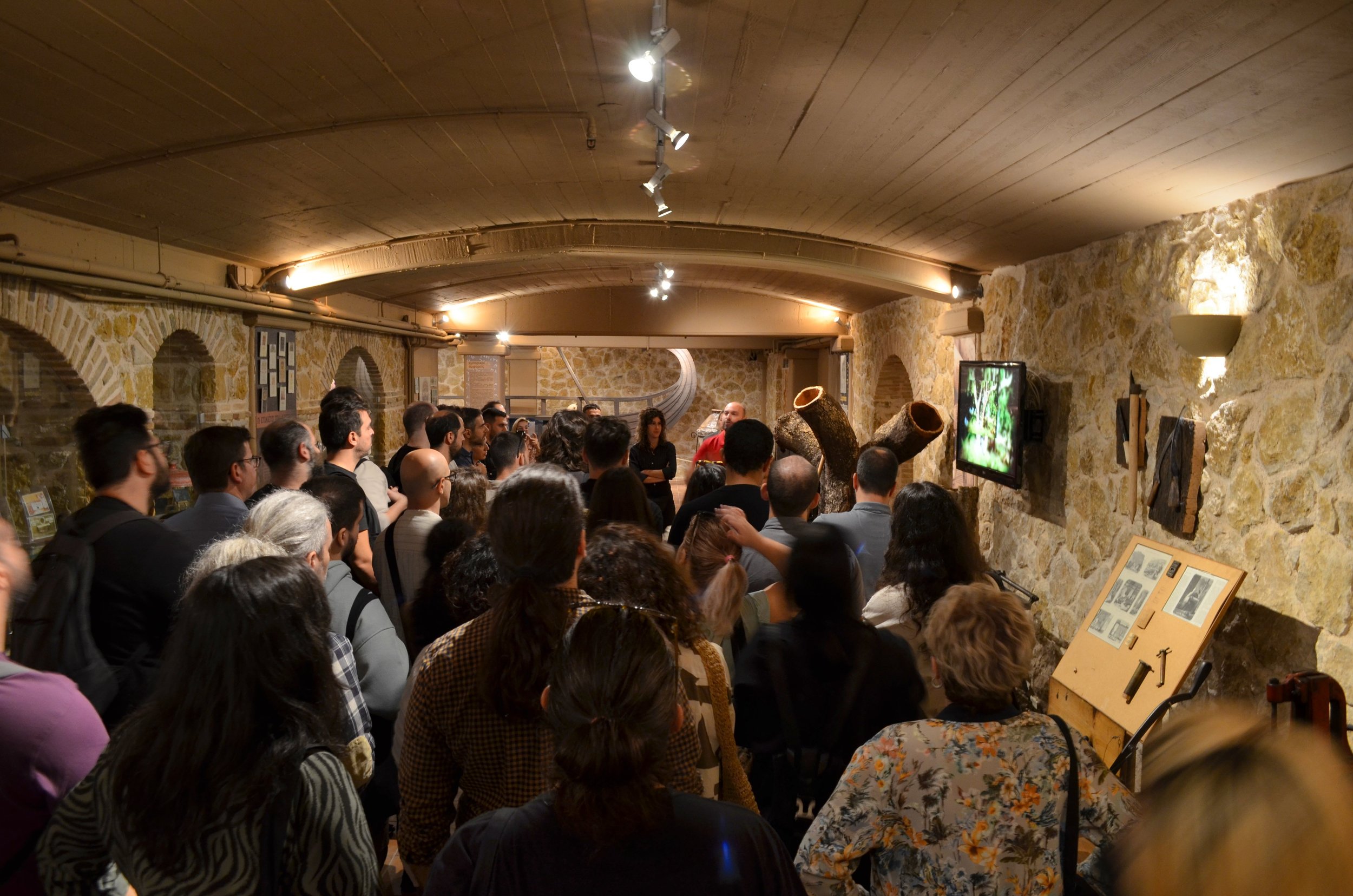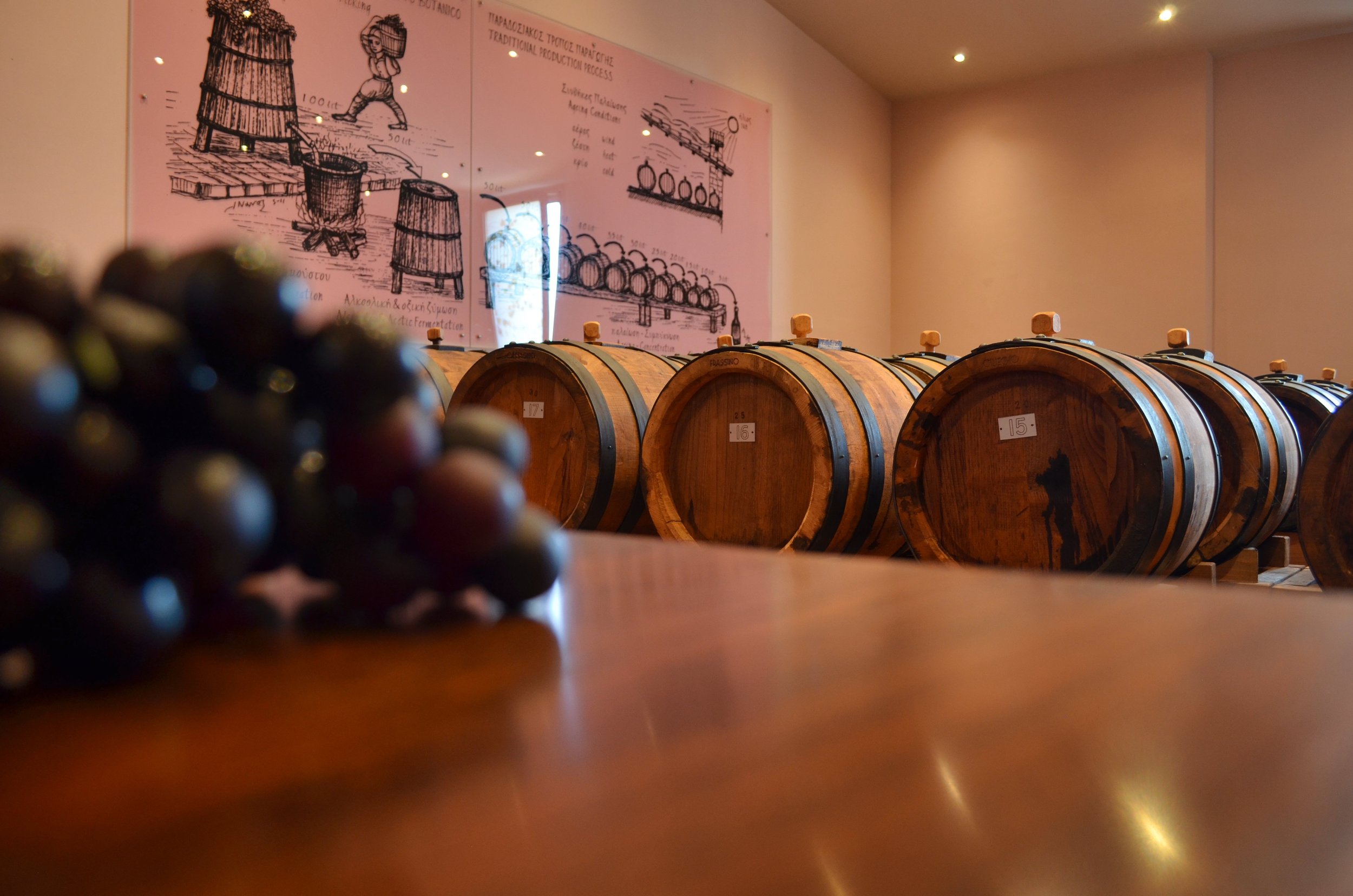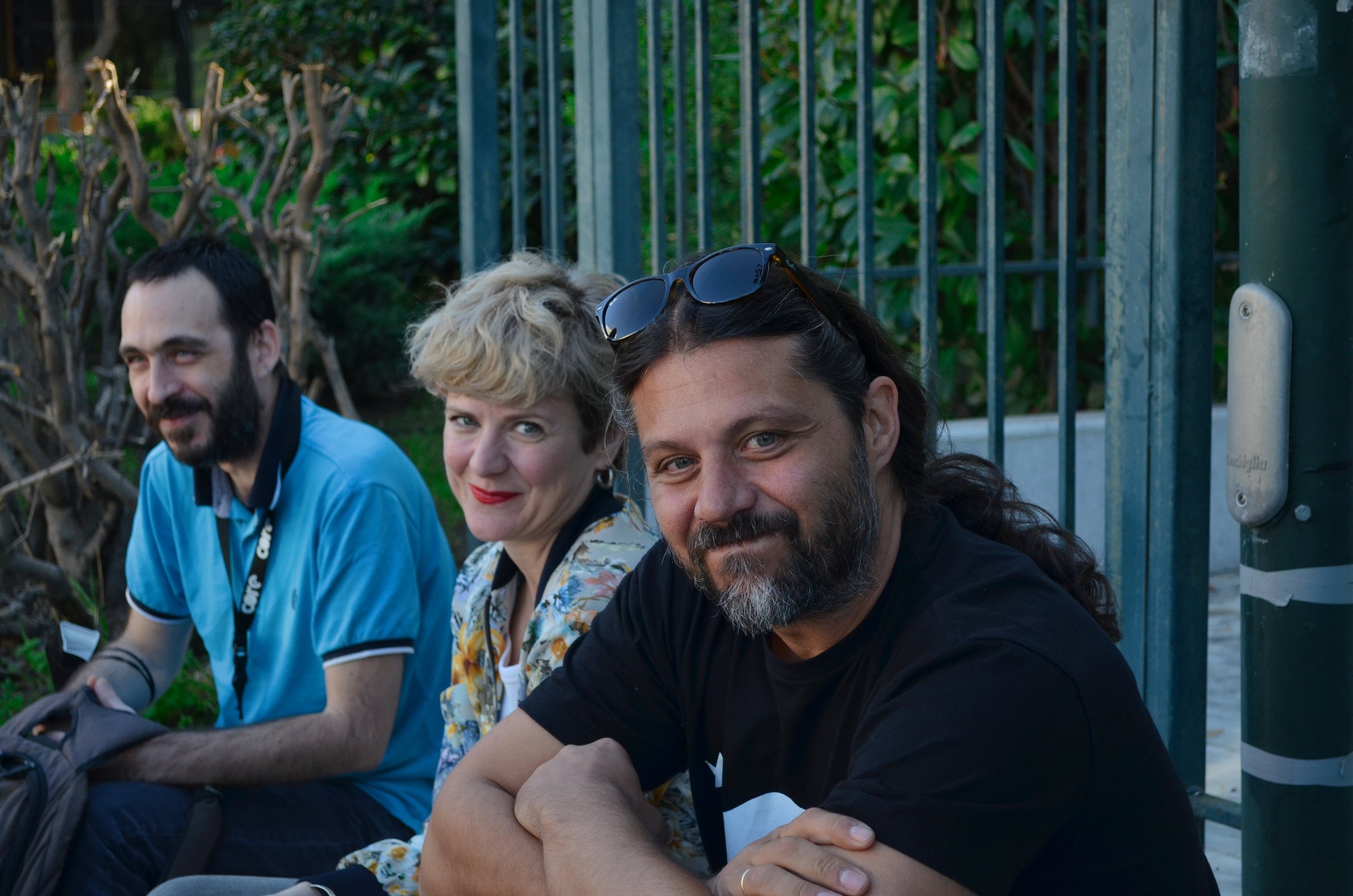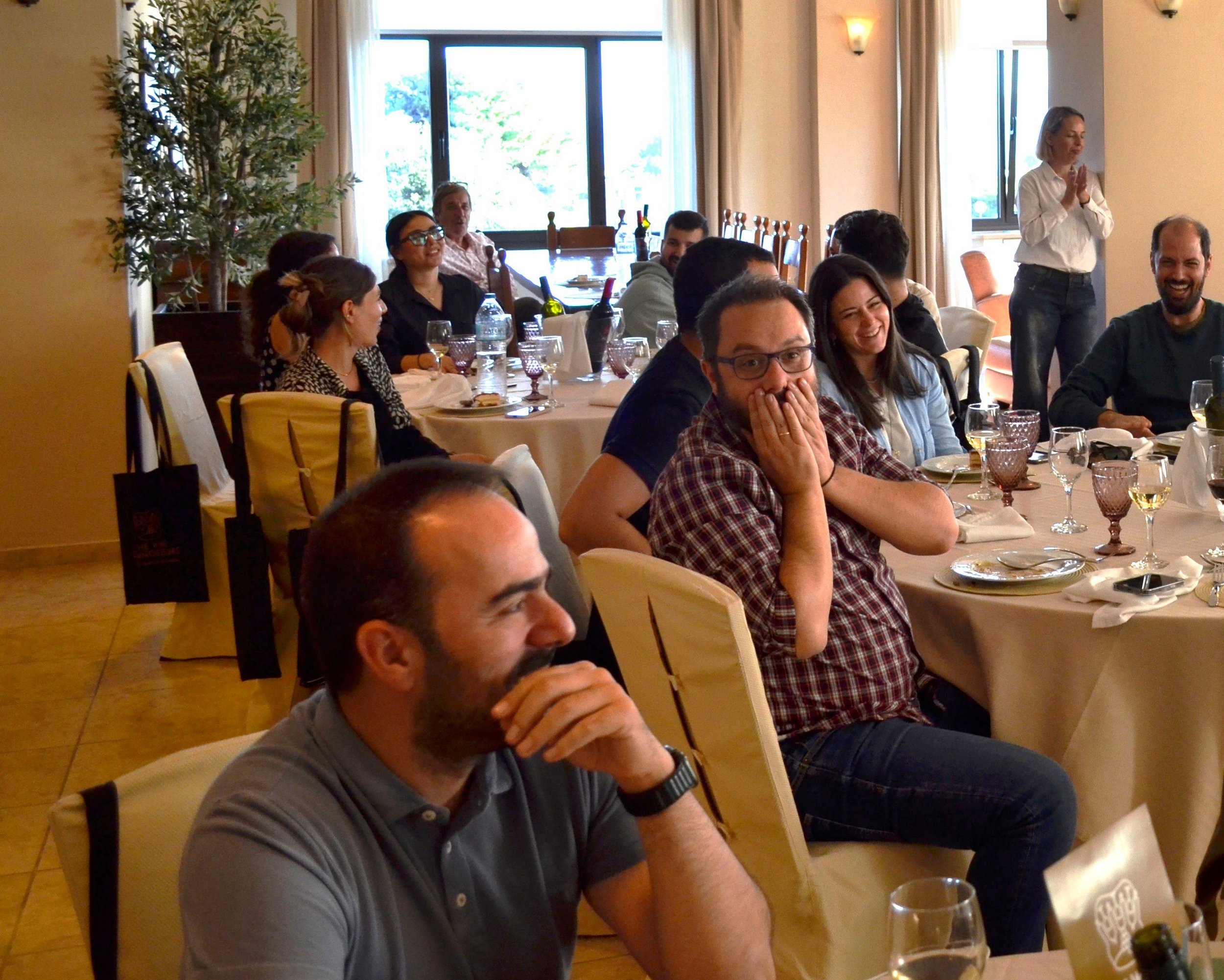News
The CORE news hub
CORE Group awarded 9 new Horizon EU projects
Author: CORE Innovation Centre
10th September 2024
CORE Group and CORE Innovation Centre are joining forces with partners across the EU in a total of 9 new Horizon Europe projects. Our team is responsible for 4 of these successful research proposals.
The new projects bring our total to over 50 research projects, ongoing or completed, and increase our research budget to over 24 million €. We are very excited for these brand new R&I initiatives, a preview of which you can get below, and look forward to working with our partners to transform industry with the power of AI.
DEXPLORE
DEXPLORE seeks to revolutionise mineral exploration in Europe by developing innovative approaches to counter declining ore deposit discovery rates, focusing on deep-seated deposits critical for the economy's decarbonisation. The project emphasises engaging the general public and stakeholders, combining innovation at various levels, and utilising cutting-edge tools and technologies. Targeting essential materials across extensive geological terrains, DEXPLORE proposes a holistic innovation package, integrating UAV-assisted in-field mineral detection, advanced Earth Observation methods, and novel deep-land geophysics techniques to reach at least 600 m depth.
The initiative outlines the development of updated ore models, improving exploration technologies, and providing a visualisation platform. This platform will integrate geological, remote sensing, and geophysical data to enhance access to information about EU potential in critical raw materials, while increasing public awareness. DEXPLORE also aims to strengthen cooperation with strategic partner countries, establishing a robust Advisory Board and fostering collaboration with other EU initiatives for joint activities and result sharing.
DEXPLORE represents a collaborative effort to advance mineral exploration, contribute to sustainable sourcing of critical raw materials, and ensure EU's open strategic autonomy.
-
We will determine technical specifications for the software platform and a cloud-based infrastructure, ensuring compatibility with diverse data types and sources. Essential aspects like data ingestion protocols, storage solutions and security measures will be outlined. We will design and implement a robust and secure infrastructure for on-demand data distribution, utilizing established industry tools and frameworks. DEXPLORE will transform data from various devices and components into suitable formats and transmitting them to real-time and near real-time pipelines, through middleware.
We are also in charge of the visualisation dashboard and the UI, catering diverse user needs and preferences and making the user's interaction easier with complex data. We are aiming for an intuitive, responsive, and visually appealing UI with advanced visualization techniques, like 3D accelerated maps by Xcalibur, graphs and charts for data exploration and analysis, while ensuring robust and safe data exchange along. Design, development and use of an Augmented Reality (AR) application by ICCS, will be implemented to the platform, improving awareness of the general public and educate them through immersive visualizations. AR tool will be part of the open days to ensure social participation and engagement.
Additionally, we are heavily involved on the exploitation planning and technoeconomic analysis.
PRIM-ROCK
PRIM-ROCK addresses advanced techniques for the pre-processing of the raw material, calcination and roasting processes, that are commonly used in the mineral and cement industries, supplemented by simulations and decision support systems. The project aims to design, develop, and validate innovative and higher resource efficient processes, optimising existing ones and lowering the level of GHG emissions of extractive industries. AI data-driven models will be utilised and a digital twin for each process will be developed. Finally, the consortium will investigate waste reduction and re-utilisation strategies. The PRIM-ROCK solutions will be demonstrated in 3 different ASPIRE sectors, namely Minerals (magnesite, laterite), Cement (limestone) and Non-ferrous metals (sphalerite, chalcopyrite).
-
We are leading the effort of optimization and integration of Digital Twinning processing (DSS & UI), enhancing the resource efficiency of the calcination and roasting processes. The DSS will integrate diverse streams of heterogeneous information from various models (data-driven models, physics-based models or hybrid models). This system will deliver real-time insights and alerts. A prototype of the UI will be designed, tested and refined based on user feedback. The final UI will be developed integrating the data models and the DSS and user acceptance testing will be conducted.
CORE IC is also leading the effort of Virtual scale up and expansion study suggesting configurations within the energy system’s boundary conditions, linking of additional added value technologies, mainly CCUS and synthetic fuel production. A Reinforcement Learning (RL) algorithm will be employed to train the planning model as well as Black-box models
Finally, we are leading the 3-phased dissemination and communication activities. The early phase will be dedicated to raising awareness among the target groups and will include the brand and visual identity of PRIM-ROCK, with Dissemination activities targetingboth the academic and industry professional communities, through online events like webinars, congresses, etc. The middle phase will be dedicated to growing and consolidating awareness, informing stakeholders and groups about technological breakthroughs and business benefits. The final phase will ensure the long-term impact within targeted communities.
ALCHEMHY
ALCHEMHY aims to develop a set of innovative electrified processes to produce platform chemicals, particularly ammonia, and methanol and a Plasma-Catalytic Hydrogenation process (PCH). To this end, processes configuration will be optimised and novel materials and catalysts compatible with the electric input will be developed, optimising their performance, ramp-up times and enabling milder conditions. This will support the intensification and downscaling of the ammonia and methanol production, facilitating decentralised production integrated with downstream processes and renewable energy generation. The project will contribute to the development of a sustainable chemical industry, by decarbonising the production of both chemicals, supporting the creation of green jobs and improving the competitiveness of European industries, while contributing to a more resilient and secure energy system for the EU, reducing its dependence on imported fossil fuels.
-
CORE Group is leading the development of AI-based data-driven models of the methanol and and ammonia production processes and their combination with the ROMs produced, in order to develop the Hybrid Digital Twin of each of these projects. Data-driven models will consume the available data from the lab scale facilities. Moreover, exploitation of the generated data will provide further insights and information that can attempt to correlate any process parameters with the relevant molecular dynamics properties and interactions of the involved products, optimising the manufacturing parameters and detecting any potential anomalous behaviour of the involved assets. The investigation of Physics-Informed models can be performed for validating the performance of the generated ROMs.
Additionaly, we are responsible for ALCHEMY's Exploitation Plan and IPR management, which involves a three-phase process of analysing results, defining exploitation routes, and developing a post-project roadmap to ensure effective commercialisation and industry impact. The plan includes tailored business models, market size and competition analysis, and a SWOT analysis to address customer needs and validate the value proposition of ALCHEMY's KERs
StreamSTEP
StreamSTEP is a collaborative initiative by 31 organisations across the EU, Switzerland, and the UK, aimed at enhancing heating energy management in industrial processes. The project focuses on waste heat recovery across a wide temperature range using innovative heat exchanger prototypes and high-temperature heat pumps. Advanced manufacturing techniques and novel material alloys will enable these innovations, which will be demonstrated in five sectors: non-ferrous metals, ceramics, minerals, plastics, and refining. Integral to the project is a holistic process digital twinning pipeline, providing infrastructure for optimization agents to manage energy balance, storage, GHG avoidance, and data-driven LCA, ultimately recovering and reusing 50%-90% of waste heat with a payback period of less than three years, while boosting productivity and energy flexibility.
-
CORE IC is responsible for the development and integration of the project's technical components. This includes creating the data architecture and middleware for the digital infrastructure, integrating smart IoT components, and developing hybrid process digital twins. Additionally, CORE leads the effort to expand the Energy Management System (EMS), implementing advanced techniques like machine learning and deep neural networks to optimise industrial processes and energy management .
CORE IC will also be handling the project's communication and leading on the exploitation strategy, with Exploitation Routes (technical and commercial) for KERs, considering IPRs, ensuring that project results are effectively communicated and positioned for market uptake, maximising the impact and commercial potential of the innovations developed.
OPTIMINER
The OPTIMINER project addresses Europe's challenge of efficiently and sustainably recovering Critical Raw Materials (CRMs) from complex and low-grade ores. It aims to reduce Europe's heavy reliance on CRM imports by innovating in recovery methods and promoting sustainable mining practices. Key components include advanced technologies like an AI-enabled CRM Recovery Selector and a digital platform (DIGIMINER) for smart monitoring and control. ECOMINER focuses on sustainability through energy and water optimization, waste valorisation, and toxicity management. DEMOMINER showcases pilot lines across multiple countries, demonstrating practical applications, while GLOBEMINER promotes market awareness and strategic EU-Chile cooperation in CRM recovery.
-
CORE IC is leading the effort for the technical plan of each use case, including technical specifications and technological experties (AS IS situations, data availability, sensors connectivity, other operating systems). We are also in charge of the CRM Recovery Selector, defining criteria and parameters, developing technology database with a detailed profile of each use case, along with algorithm development with customizable capabilities and a UI design intergating a digital assistant (NPL-based).
The DIGIMINER platform will be built on data-driven Digital Twins, by leveraging sensorial, historical and operational data and proper abstraction and distribution among the data sources. We will design the connections and interactions of Digital Twins, DSS and Virtual Miner, as well as, establish a cloud infrasturucture, featuring hybrid data warehouse. New data from simulation results and experimental data cross corellation will be adjusted to the model. A modular AI-augmented market observatory will be designed forecasting mining market values.
The team of experts at CORE IC will also be leading dissemination and communication, as well as exploitation and innovation management activities, with a heavy focus on awareness about the project's outcomes and their impact, emphasizing sustainable raw materials production.
Theseus
The Theseus project focuses on implementing Industrial-Urban symbiosis (I-US) through Hubs4Circularity (H4C) in Europe, starting with the Athens/Attica region in Greece. This initiative involves municipalities and industries collaborating to manage resources, waste, energy, water, and infrastructure in a sustainable manner. The project aims to establish the first-of-its-kind H4C hub in Greece, leveraging regional needs and digital technologies to develop solutions for water, energy, and materials. These efforts align with EU objectives, aiming for climate neutrality by 2050 and closing resource loops through innovative governance models and stakeholder cooperation. Theseus integrates existing innovations and aims to replicate successful solutions across other EU regions, drawing parallels to the transformative legacy of Theseus in Athenian mythology.
-
CORE Group will work on defining key performance indicators (KPIs) for monitoring impacts across various dimensions, facilitating informed decision-making in subsequent project tasks. The project focuses on coordinating digital plans for pilots and mapping data requirements to finalize a comprehensive data model. CORE Group will also be leading the integration of diverse data sources and ensuring secure and efficient data exchange across all project activities, collaborating closely with partners to implement cost-effective and robust data acquisition measures. Additionally, we are going to design and operate a Predictive Resource Logistics Module (PRLM) within the Hubs4Circularity framework, predicting material and water flows and generating socio-economic and environmental indicators. It aims to identify bottlenecks, business opportunities, and scalability options, with plans for post-project automation. A digital platform will be developed, integrating various modules and services for industrial symbiosis, enabling collaboration and resource tracking, supported by advanced analytics and user feedback for iterative platform optimization. Outputs include detailed reports and functional platform releases.
JOULIA
The JOULIA project aims to develop and demonstrate innovative induction and microwave heating processes for rubber vulcanisation and glue thermal activation in the rubber and plastic sectors, optimising them for flexibility, energy savings, and integration of renewable energy sources. These processes will be refined using digital models and simulations, ensuring adaptability, cost optimization, and compliance with health and safety standards, while predictive maintenance tools support ongoing operation. The project involves 16 partners from 7 EU countries and aims to enhance European industrial resilience, decrease fossil fuel dependence, and improve energy efficiency and sustainability, with potential applications in other sectors like food and ceramics.
-
We are responsible for leading the identification of Funding Sources and Financial Instruments that can support the replication and upscaling of JOULIA innovations. We are also involved in the task of business models development that leverage the project's technological advancements to identify new market opportunities and in the task of the identification of Regulatory and Standardization Barriers that may hinder in the market uptake of JOULIA technologies.
We are involved in exploitation management tasks, contributing to the overall coordination and decision-making processes within the project.
rEUman
The European remanufacturing industry is essential for Europe's sustainable transition due to its energy, material, and functionality savings, along with significant socio-economic benefits like job creation and technological advancement. To enhance competitiveness and future-proof the industry, it is crucial to address barriers such as limited automation, poor human inclusion, and lack of digitalisation.
The rEUman project aims to develop a human-centric remanufacturing approach by improving factory-level regeneration and traceability and ensuring stability in the value-chain, while demonstrating its effectiveness in the automotive, home appliances, and optoelectronics sectors.
-
Our technical role in the rEUman project encompasses the design and development of digital and AI-driven systems that evaluate the condition of returned products through image analysis at collection points, such as workshops or service centers. By assessing the remanufacturability of parts, the system aims to optimize decision-making regarding whether parts should be sent for remanufacturing, considering both technical and economic feasibility. This process is intended to minimize logistics costs and environmental impacts by avoiding the unnecessary transportation of non-remanufacturable parts.
INBLANC
Significant challenges in the building and construction value chain stem from fragmentation and siloing, necessitating a systemic change through lifecycle perspectives to uncover interactions and opportunities. INBLANC aims to establish an open ecosystem focused on building lifecycle data, using low-cost data collection, consolidation in Building Digital Logbooks, and interfacing with EU dataspaces. The project will demonstrate its approach through six diverse demo cases, engage actors across the value chain, and integrate high-value services for energy planning, facility management, and renovation planning, aiming for near-market readiness.
-
CORE IC is responsible for the development of smart energy services tools like the RES Selector and Energy Management System (EMS), which optimise renewable energy source investments and balance system energy consumption and their validation using gap detection and optimization for city-scale identification and remedy recommendation. We are creating new technologies using high-performance computing infrastructure for tasks such as deep learning model development and energy consumption forecasting that support support advanced modeling, simulation, and machine learning applications.
Furthermore, CORE is also leading the communication, dissemination, innovation and exploitation activities.
We are also leading the communication, dissemination, innovation and exploitation activities.
COREbeat has been installed at key Greek industry facilities
Author: Alexandros Patrikios
July 23rd 2024
COREbeat, CORE Group’s flagship predictive maintenance solution, promises to eliminate downtimes through the use of Deep Learning algorithms.
Offering a 360-solution, COREbeat comprises compact hardware, AI-infused software and an intuitive web and mobile UI and has been applied to many production lines across Europe.
Since last month, COREbeat has been installed in two additional industrial facilities in Greece.
The installation at TERNA MAG mines
TERNA MAG is a magnesite and magnesia producer, and a member of GEK TERNA GROUP, one of the leading business groups in Greece. It exploits the world-class magnesite deposits in the northern part of Evia island.
COREbeat was installed at the TERNA MAG mines to assist the maintenance staff with its cutting-edge predictive maintenance capabilities, increasing their machinery’s lifespan and reducing their production’s downtime. The installation is expected to lead to measurable improvements in the near future.
The installation took place as part of the MASTERMINE Project, which aims to assist the EU mining industry in overcoming the challenges of its green & digital transition.
The installation at the EYDAP wastewater treatment plant
EYDAP is the largest company in Greece in the water supply, sewerage and wastewater treatment sector. It covers the needs of more than 40% of the country's population and supplies the region of Attica with high-quality drinking water.
COREbeat is now up and running at EYDAP’s Wastewater Treatment plant in Metamorfosis, in Attica, with a daily capacity of 24 thousand cubic meters of septic sewage and 20 thousand cubic meters of municipal wastewater. EYDAP staff is going to use COREbeat for monitoring purposes, and it will assist the staff in optimising the energy demand levels of the plant.
The pilot installation is part of CORE Group’s work for the Trineflex Project, which is supporting the transformation of energy-intensive industrial processes through the integration of energy flexibility and the supply of raw materials.
Find out more
If you’re interested in COREbeat’s predictive maintenance capabilities, you can visit out dedicated product page, or reach out directly to info@core-beat.com, to see how our team can help you.
CORE Group launches the Greek Smart Factory
Author: CORE Group Managing Partners
July 17th 2024
CORE Group’s newest endeavor, the Greek Smart Factory, is off to a great start following its launch last month.
The Greek Smart Factory is a platform for manufacturers, tech providers and academia, allowing them to network, innovate, and advance in a real industrial environment.
The CORE Innovation Centre (CORE IC), CORE Group’s research and innovation powerhouse, is dedicated to fostering an innovative industrial ecosystem. Through participating in over 50 Horizon EU projects, with over €24 million in EU funding, and a network of more than 300 partners worldwide, CORE IC and CORE Group have developed an expertise in developing Industry 4.0 solutions for various sectors, including extraction, processing, manufacturing, buildings, infrastructure, and energy systems.
Thanks to this rich know-how, and through its participation in the Twin4Twin project, CORE IC has been funded to create the Greek Smart Factory – a trusted platform for manufacturers and tech providers to network, innovate, and advance on their Industry 4.0 journey.
Announcing the Greek Smart Factory to the world
The official announcement took place during the 5th International Smart Factory Summit in Switzerland. Stefanos Kokkorikos and Nikos Kyriakoulis, CORE Group Founders and Managing Partners –visionaries behind the Greek Smart Factory initiative– were invited, to share their vision with fellow smart factory innovators from across the world. Alongside the Swiss Smart Factory, CORE Group acted as the European representatives to our global network of smart factories.
Following the announcement, a stakeholder workshop took place at the CORE Group central offices in Athens, Greece. The workshop was attended by key professionals and manufacturing decision-makers from Greece and our global network, who showed their trust in the Greek Smart Factory vision and provided feedback on our approach, based on their own success stories and the industry’s active needs from such a ground-breaking initiative.
A trusted platform to network, innovate, and advance
The Greek Smart Factory (GSF), envisioned as a legacy scheme, aims to provide a virtual and physical platform for all the needs of manufacturers and tech providers. This platform will allow key decision-makers to apply the latest and greatest academic innovations in an environment that seamlessly simulates their actual industrial setting. Members will be able to use GSF to find resources and solutions to their daily challenges, through interactive partnerships and through identifying their ideal markets. Our resources will be available for members to innovate, testing new technologies and business models, so they can change their status quo and advance in a safe environment before they make the actual investment.
On top of actual, testing-ground collaborations, we want to offer members a space where they can interact through training sessions, pitching meetings and brainstorming workshops, to collaboratively address their common challenges in an equalitarian way.
Learn more
The Greek Smart Factory is the culmination of a year’s worth of efforts by CORE Group to help people, industries and organisations fulfil their true potential. Offering a platform with unparalleled resources for manufacturers and tech providers, it is set to revolutionise Industry 4.0 initiatives in Greece and abroad.
Be the first to know the latest news about this pioneering endeavor by subscribing to our newsletter, and receive exclusive updates on industry insights, trends, and company news directly in your inbox.
If you would like to express your interest in the Greek Smart Factory directly, you can reach out to Maria Lentoudi.
Maria Lentoudi
External Relations & Events Coordinator
mlentoudi@core-innovation.com
+306978143191
Future-proofing a 120-year old marble quarry
COREbeat is digitally transforming Marini Marmi,
a historic marble quarry in the north of Italy.
Future-proofing a 120-year old marble quarry
Author: Alexandros Patrikios
July 5th 2024
Our sustainable future relies on longevity, which can be ensured through the meaningful restoration and modernisation of our historic past. That is the case for Marini Marmi, a historic stone transformation facility in the North of Italy, which has supplied material for a variety of big structures with significant heritage impact all over the World.
COREbeat is helping this historic facility modernise its legacy equipment and machinery, through the use of cutting-edge predictive maintenance algorithms.
The Dig_IT project
CORE Group’s collaboration with Marini Marmi stems from the Dig_IT project, a Horizon 2020-funded project which aims to address the needs of the mining industry, moving forward towards a sustainable use of resources while keeping people and environment at the forefront. The Marini use-case of the Dig_IT project aims to reduce unpredicted downtime contributing to overall productivity optimisation.
Where COREbeat comes in
COREbeat, CORE Group’s flagship predictive maintenance solution, promises to eliminate downtimes through the use of Deep Learning algorithms. Offering a 360-solution, COREbeat comprises compact hardware, AI-infused software and an intuitive web and mobile UI and has been applied to many production lines across Europe. Its capabilities present Marini Marmi with a pivotal next step in the digitalisation of their facilities.
At the Marini Marmi quarry, COREbeat has been installed in different assets of a large-scale marble-cutting engine. Installation took less than 2 hours, and Marini employees could immediately monitor the behavior of their gang saw. In less than 6 weeks, COREbeat’s predictive maintenance capabilities also became available.
When things break down
After the initial installation and training period, the quarry’s employees received a notification, informing them that one of the parts was in critical condition and required immediate attention. In just one week, the part was now in critical condition, with a COREbeat’s health score below 10% indicating that it is time for maintenance. The factory staff scheduled maintenance for the machine 4 days later, and the machine kept working for another 3 days, breaking down within the indicated timeframe. The results were highly positive for COREbeat, but the Marini Marmi staff were faced with delays that might have been prevented.
Find out more
COREbeat is still up and running at Marini Marmi through the Dig_IT project. If you’re interested in finding out more about Dig_IT, you can follow the project’s dedicated page on social media. For all the rest of our 40+ EU research projects, you can find more information on our dedicated webpage.
And if you’re impressed with COREbeat’s predictive maintenance capabilities, you can reach out to info@core-beat.com, and learn how our team can help you.
CORE Group at the Energy Efficiency in Manufacturing Conference
Author: Alexandros Patrikios
July 1st 2024
Last month, the CORE Group team attended the Energy Efficiency in Manufacturing Conference as sponsors.
It was a great day full of intriguing discussions on industrial sustainability, with Valia Iliopoulou, Energy and Resource Efficiency Unit Leader at CORE Group, giving a captivating speech to attendees.
Harnessing Industry 4.0 tools
Valia Iliopoulou, Energy and Resource Efficiency Unit Leader at CORE Group, delivered a presentation to the conference audience, showcasing how Industry 4.0 tools can be used to ensure energy efficiency, flexibility and resilience in the manufacturing sector. Valia presented the REPowerEU plan of the European Green Deal and its challenges for manufacturers, drawing from the real life examples of some key projects CORE Group is involved in, like Trineflex, Metawave, and Streamstep.
You can download Valia’s presentation here.
The conference booth
As always, COREbeat, our all-in-one Predictive Maintenance solution, was there for conference attendees stopping by our booth. Visitors got an exclusive look at beatBox, COREbeat’s hardware component, as well as COREbeat’s highly intuitive UI platform. You can find out more information about COREbeat and how it can help you otpimise your industrial operations here.
We also got to offer some insights into our ground-breaking energy efficiency R&I initiatives, with a focus on Trineflex, which is transforming energy-intensive industrial processes through the integration of energy flexibility and the supply of raw materials. You can get a more in-depth look on our Industry 4.0 research projects here.
Stay in touch
A big thank you to the conference organisers for a very intriguing day talking about our joint efforts towards a sustainable manufacturing future.
CORE Group at the Smart Factory Conference
Author: Alexandros Patrikios
June 27th 2024
This year’s Smart Factory Conference took place in late May, and CORE Group was a sponsor for the event.
It is our second time attending, and it was great to join a highly engaged audience of pioneers in the Smart Factory arena.
Building a Smart Factory in Greece
Dr. Nikos Kyriakoulis, Co-Founder and Managing Partner at CORE Group, delivered a captivating presentation to the conference audiences, discussing the Smart Factory market globally. Drawing a comparison to the international market, he made the point that Greece is lagging behind, and showcased ways for the industry to pave the way forward, towards a Greek Smart Factory, together.
If you didn’t make it to the conference, you can watch his presentation below.
The CORE Group showcase
Conference attendees got to take a look at COREbeat, our all-in-one Predictive Maintenance solution. Stopping by our booth, visitors got to interact beatBox, COREbeat’s hardware component, as well as COREbeat’s highly intuitive UI platform. You can find out more information about COREbeat here.
We also got to offer some insights into our ground-breaking research and innovation initiatives, spearheaded by CORE Innovation Centre. The spotlight was on our Twin4Twin project, which digital twins and expertise exchange with our EU partners, as well as ELEXIA, focusing on a cross-sector digitised energy system.
Stay in touch
A big thank you to the conference organisers for a very intriguing day of meeting our Industry 4.0 peers and exchanging views on the future of smart factories.
See you all at the next event!
Nurturing leadership and soft skills at CORE Group
Author: Antigoni Nikolaidi
June 7th 2024
At CORE Group, our mission is to empower people, industries, and organizations to reach their full potential. We believe that continuous self-development and the enhancement of soft skills are crucial to this journey.
Recently, our management team had the opportunity to immerse themselves in a transformative 3-day leadership workshop held at our offices.
Our CORE goal
This workshop, facilitated by the experts at Game Tree, was meticulously designed to align with our CORE company values. At CORE Group, we are committed to a simple yet profound goal: to be better in six months than we are today. This commitment to growth drives us to continually seek new skills and identify areas for improvement.
The workshop
Game Tree, renowned for their expertise in HR training and development, guided our team through an engaging and interactive series of training sessions. These sessions focused on enhancing leadership skills, fostering better communication within teams, and exploring innovative management approaches. Through dynamic games and activities, our managers learned new strategies for effective collaboration and team communication.
The workshop was more than just a training session. We place immense value on our people, and it is vital for us to work cohesively as a team in our day-to-day operations while also striving to achieve our long-term objectives. The right training, coupled with essential soft skills and practical tools, helps us cultivate an interactive and inclusive workspace.
We extend our heartfelt thanks to Game Tree for their exceptional facilitation of the workshop. Their expertise and innovative approach provided our team with a highly informative and enjoyable experience.
At CORE Group, we are dedicated to fostering an environment where continuous improvement and personal development are not just encouraged but celebrated. This workshop is a testament to our commitment to building a brighter, more collaborative future for our team and the industries we serve.
Our CORE team at Beyond Expo
Author: Alexandros Patrikios
April 29th 2024
Beyond Expo took place this past week, and our team couldn’t miss out.
It’s our second time participating at the event, and we were very excited to meet all our industry friends and participate in some very insightful discussions.
Preparing for the event
Before leaving for the event, we were invited by Naftemporiki TV to talk abour CORE Group, our participation in Beyond Expo, and the AI in manufacturing landscape in Greece and beyond. We were very happy for the last minute call, and for getting the chance to reach a wider audience for CORE Group and its partners.
You can watch the brief interview by Dr Nikos Kyriakoulis, Co-Founder and Managing Partner of CORE Group, in the link below.
Engaging with the community
Throughout the three-day event, we had the pleasure of engaging with many attendees stopping by our booth.
The expo was an interesting mix of industry veterans and AI enthusiasts, all of whom were very excited to see our Predictive Maintenance platform, COREbeat, in action. Our showcase included a motor connected to a beatBox, COREbeat’s hardware component, and visitors were allowed to push a nail in the machine and watch COREbeat’s UI platform spot the malfunction in near-real time. COREbeat already counts many pilots, with the ELEXIA project pilot also shown at the event.
Visitors also got to learn more about our Research & Innovation initiatives through the CORE Innovation Centre, with a focus on the pioneering Greek Smart Factory concept of our Twin4Twin project.
Industry Panel Discussions
Our managing partners, Nikos Kyriakoulis and Stefanos Kokkorikos, were invited to participate in two separate panel discussions, discussing the latest developments in machine learning and AI.
Nikos Kyriakoulis took part in a panel discussion hosted by HETiA and SEKEE, talking about innovation in the industry and opportunities specifically for SMEs.
Stefanos Kokkorikos participated in the main conference of the event, introducing CORE Group and talking about the next best in AI. You can watch the discussion here.
As part of our participation in the expo, Stefanos Kokkorikos was also invited to introduce CORE Group to the conference audience through a brief interview. You can watch the video below.
Stay in touch
A big big thank you to everyone who took the time to stop by our booth and say hi!
We look forward to staying in touch, collaborating, and all the exciting things we can achieve, together.
See you all soon!
CORE Group at the 1st Automation & Robotics Expo
Author: Alexandros Patrikios
April 23rd 2024
The 1st Automation & Robotics Expo was held from April 12 to April 14 in Athens, Greece, and the CORE Group team had to be there.
It was an exciting event full of the latest industry innovations in automation, inspiring insights, and some very meaningful connections.
The CORE Group showcase
Visitors stopping by our booth got an exciting first look at COREbeat, our all-in-one Predictive Maintenance solution, through a live demo rig. Our showcase included a motor connected to a beatBox, COREbeat’s hardware component, and visitors were allowed to push a nail in the machine and watch COREbeat’s UI platform spot the malfunction in near-real time. You can find out more information about COREbeat here.
We also got to offer some insights into our ground-breaking research and innovation initiatives, spearheaded by CORE Innovation Centre, with an exclusive first look at the Greek Smart Factory concept which we are working on, alongside our Twin4Twin project consortium. We also got to showcase the great work our Teaming.AI consortium is doing, helping Industry overcome its lack of flexibility, through the development of human-AI collaboration platform.
Engaging with the community
Throughout the expo weekend, our team had the pleasure of engaging with numerous attendees, from industry veterans to eager-eyed newcomers exploring the realm of automation. We exchanged ideas, shared experiences, and discussed the latest trends shaping the industry.
Things look very promising for the automation and robotics community in this first industry event, and we look forward to witnessing where our shared passion for efficiency and innovation will take the industry next.
Keynote speech
On the second day of the expo, Dr. Nikos Kyriakoulis, Co-Founder and Managing Partner at CORE Group, delivered a captivating presentation on the main stage of the expo, addressing the key challenges facing the manufacturing sector in the era of Industry 4.0 and beyond. From the need for decarbonisation, to generating ESG-relevant business value, Dr. Nikos Kyriakoulis offered potential solutions to all high-stakes industry challenges, using the latest evolutions in AI and machine learning technology.
If you didn’t make it to the expo, or missed the presentation, a recording is now available on our YouTube channel. Simply follow the link below.
Stay in touch
We extend our gratitude to everyone who took the time to visit our booth and engage with our team. We look forward to continuing the journey of innovation and collaboration together.
See you all at the next event!
Transforming Greek manufacturing with COREbeat
CORE Group’s all-in-one predictive maintenance platform
is the go-to solution for EP.AL.ME., the leading Greek manufacturer.
Transforming Greek manufacturing with COREbeat
Author: Alexandros Patrikios
April 11th 2024
COREbeat, CORE Group’s signature product, is here to cover an inherent need of the manufacturing sector – the seamless operation of its production machines.
COREbeat is an all-in-one predictive maintenance solution, encompassing compact hardware, AI-infused software, and a web and mobile UI. COREbeat operates through collecting data using its built-in sensors in real-time, then employing machine learning algorithms to detect behavioural anomalies and and provide early notifications of upcoming failures.
The collaboration
Since last summer, COREbeat has been the driving force behind EP.AL.ME.’s predictive maintenance capabilities.
A subsidiary of MYTILINEOS, EP.AL.ME. is an Aluminium Recycling company that specializes in the processing and sorting of scrap metal and the production (smelting) of recycled Aluminium billets. Their collaboration with CORE Group started as part of the e-CODOMH cluster, whose mission is to upgrade entrepreneurship and create an added value in the Greek construction sector.
Installation
The initial installation of beatBox, COREbeat’s hardware component comprising IoT and Computing Edge devices, takes only 2 hours. Upon installation, employees can monitor the behaviour of their machine right away, through COREbeat’s intuitive User Interface. The predictive maintenance capabilities begin at 4 to 6 weeks, and that’s when COREbeat’s Deep Learning magic comes in at full force. After this initial training period, factory employees receive instant notifications through the app for any anomalies. This way, they know immediately whenever the operational health of a machine asset starts declining.
Below, we have some photos of the EP.AL.ME. installation by the COREbeat team.
How COREbeat helped EP.AL.ME.
EP.AL.ME. came to appreciate COREbeat’s predictive maintenance capabilities soon after installation. Maintenance employees at the facility were notified that one of the fans in the aluminum recycling facility was in critical condition, a few days after scheduled maintenance had already taken place. The factory staff, upon inspection, could not find the source of the malfunction, so they continued operating the fan normally.
In the COREbeat interface, the fan kept appearing to be in critical and worsening condition over the span of 2 weeks, which led the staff to pause its operation for an unscheduled maintenance check. During this check, they found an issue with the motor belt of the fan, which they would have missed without COREbeat. This saved the facility from unexpected downtime, delays in the factory’s production pipeline, and substantial losses due to production delays.
Find out more
COREbeat’s success relies on CORE Group’s long experience in the field of machine learning for manufacturing. With a long list of over 40 EU projects, CORE Group is turning into a household name in AI technologies and their industrial applications.
If you are interested in COREbeat’s predictive maintenance capabilities, you can reach out to our team and share more information on the needs of your manufacturing facility through info@core-beat.com.
The InComEss project wraps up
Authors: Clio Drimala, Dimitris Eleftheriou
19th March 2024
Having successfully completed 4 years of operations, the InComEss project officially wrapped up its activities last month, and held the project’s Final Review Meeting with the European Commission’s Project Officer on March 13, in Brussels, at the premises of SONACA.
With a core team of 18 partners from 10 countries, InComEss entered into force in March 2020. Now, after a four-year lifespan, the project has yielded remarkable results, including more than 17 open-access academic publications, and has driven outstanding research on the development of polymer-based smart materials with energy harvesting and storage capabilities in a cost-efficient manner for the widespread implementation of the Internet of Things (IoT).
CORE Group was involved in various tasks within the project framework to expand InComEss’s impact. In particular, we were responsible for devising and managing the consortium’s exploitation strategy, as well as leading the dissemination and communication strategy.
Project overview
Besides our involvement, overall achievements of the project include the development of:
Piezoelectric and thermoelectric energy harvesters with a proven ability to generate electricity through mechanical vibrations and temperature differences.
Monolithic printed supercapacitors that demonstrated their efficacy to store the harvested energy when integrated with a conditioner circuit and generators.
A power conditioning circuit that enhances energy transfer efficiency between generators and end-use electronics.
A miniaturized Fibre Optic Sensors (FOS) interrogator, with reduced power consumption, was showcased for its utility in energy harvesting.
Furthermore, Bluetooth Wireless MEMS and FOS communications were optimized and seamlessly integrated into an IoT platform, offering data monitoring capabilities. Among the research highlights being implemented within InComEss are also three impactful use-cases within the aeronautic, automotive, and smart buildings sectors.
Exploitation activities
The exploitation activities encompass an exhaustive market analysis targeting the consortium’s end users and other markets that could potential leverage the project’s innovations. The specific markets addressed were: 1) Smart Buildings, 2) Aeronautics, 3) Automotive, 4) Oil & Gas Pipelines, 5) Sports Environment, 6) Pacemakers, 7) Railway, and 8) GPS tracking devices. We identified market barriers that would slow down the adoption of the project’s technologies, which we categorized in regard to their nature (Sociopolitical, Economic, Environmental, Technological, Organisational). Based on the information provided, unique selling points of the results with commercial orientation were discerned.
Moreover, results were identified with a clear IPR protection path and exploitation route option. Partners decided whether they would use their results for further research or commercially. We developed business models for the more marketable results based on sustainability-oriented archetypes. The business model included the list of partners participating in the commercial exploitation and their associated activities and resources required to bring the system to the abovementioned market segments. Potential avenues such as ΣEureka and InnoEnergy were considered to reduce the initial investment costs and improve access to market.
The activities were manifested in the development of business plans for the Automotive and Aeronautics use cases. The analysis considered the potential benefits that the route-to-market partners would receive, namely Photonfirst and Smart Material and specifically the point where they would expect a return on their initial investment if they further progressed their results. Based on the activities and resources needed, an appropriate revenue model was in place to perform a financial analysis for both use cases. Moreover, we worked on a cost-benefit analysis for the end users to understand their benefit of acquiring the commercialized version of the InComEss system. Specifically, the aeronautics scenario included an installation in the wing slats, while the automotive scenario in the exhaust systems.
Dissemination and Communication Activities
When it comes to dissemination and communication (D&C), CORE devised and oversaw the dissemination and communication strategy, working hand-in-hand with the entire consortium to maximize the project's impact and resonance.
The InComEss team generated 17 open-access scientific articles, an important legacy of the project, and plans to publish 7 more in the upcoming months. Partners also participated in 32 events delivering 50 presentations and a lecture, presenting 5 posters and promoting InComEss through 2 exhibit booths and a stand in landmark industry-related events.
Beyond that, 2 workshops were organized namely, Mid-Term Workshop on InComEss EU Project and the InComEss Final Workshop. Video recordings from the workshops are available to watch here and on YouTube [Part 1], [Part 2]. 11 more short, engaging videos introducing the InComEss concept and recapping its research activities are also available on the project’s YouTube Channel.
The project’s website, designed and maintained by CORE, will continue as a central hub for useful information and resources. Visitors can learn more about important research activities performed and results through 11 press-releases, 10 newsletter issues, open-access scientific papers, public deliverables and training materials that can be found on the website.
The project has also shaped significant online communities, with more than 1000 followers on LinkedIn and 700 on X, another reflection of the overall effectiveness of the InComEss D&C strategy.
It has been a pleasure working with all our partners for the InComEss project.
Until the next one.
The MOSES project reaches a highly succesful conclusion
Authors: Pantelis Papachristou, Konstantinos Nikolopoulos
13th March 2024
After 3 and a half years, the MOSES project has reached its culmination, marked by a closing conference held online. The central goal of the project was to enhance the Short Sea Shipping (SSS) component of the European container supply chain by implementing the following three groundbreaking innovations:
The development of a hybrid electric feeder vessel, equipped with a robotic container-handling system, to increase the utilisation rate of small ports.
The establishment of a digital collaboration and matchmaking platform to match demand and supply of cargo volumes, utilising Machine Learning (ML) to maximise Short Sea Shipping traffic.
The introduction of an autonomous vessel maneuvering and docking scheme, based on the cooperation of a swarm of autonomous tugboats coupled with an automated docking system.
Our role in the project
As part of the project, CORE has been involved in the third innovation concept, pioneering the transition from traditional docking procedures to an autonomous swarm of tugboats. These advancements were facilitated by creating a sophisticated simulation environment and the application of ML techniques, which refined docking strategies. This digital twin technology, coupled with an AutoPilot control system, exemplifies a significant leap forward in maritime operations, reducing docking time and enhancing port service availability and environmental sustainability.
Machine learning approach
Initially, our team created a virtual environment to simulate the real-life components, such as the port, water mass, tugboats and containership. To ensure fidelity to actual conditions, the virtual environment integrated results from hydrodynamic simulations conducted by MOSES partners, analysing the navigation and evaluating the hydrodynamic parameters, such as the friction resistances for each ship object separately. Additionally, Finite Element Model simulations (FEM) were employed to assess the interactions between the tugboats and the containership, by evaluating force-reactions and stresses.
MOSES Unity test scene displayed during training of 3 push agents next to the “Advanced Ship Controller” and “Behaviour parameters” component.
The simulation environment served as a training environment for the developed swarm intelligence machine learning algorithm, allowing agents to learn from their experiences. Specifically, the agents (tugboats) were trained using deep reinforcement learning techniques, where the learning procedure is based on the interaction of the agents with the environment and the accumulation of feedback (rewards or penalties), while the agents collected observations through LiDAR and GPS sensors. The goal was to discover optimal strategies that maximise cumulative rewards over time. The developed digital twin was deployed at the edge, along with an AutoPilot system to control the steering and thrust of the tugboats based on the digital twin’s inference.
The digital twin was successfully demonstrated and validated in relevant environment (TRL6) at the Faaborg port in Denmark, employing a swarm of two tugboats pushing a bargue towards the dock. The accompanying video below illustrates the precision of the simulation outcomes (displayed on the left-hand side) compared with the actual real-world demonstration (on the right-hand side). This live demonstration underscored a remarkable achievement: more than a 25% reduction in manoeuvring and docking times, leading to a corresponding significant decrease in port emissions and a notable increase in the availability of port services.
Comparison of the simulation outcomoes (left-hand side) with the real demonstration in Faaborg port (right-hand side) considering the scenario where two tugboats push a bargue to the dock.
The commercilisation phase
To ensure successful commercialisation, CORE developed an Innovation Strategy, focusing on clear value propositions and competition mapping. Additionally, CORE developed a model for profit simulation, with a focus on the innovations introduced by the autonomous tugboat system, which is the only technology solution combining autonomous operation, sustainability and safety, with the highest TRL and exposed in real conditions.
Understanding our pilot
For more information on Pilot 1 of the MOSES Project, where our technical team was heavily involved, our consortium partners have created a comprehensive video explaining the AutoDock System and how it works. You can watch it below.
Over the past 42 months, we were very happy to work closely with our consortium partners to successfully deliver an autonomous vessel manoeuvring and docking system which has the potential to completely transform the Short Sea Shipping and container supply chain of the European Union.
We look forward to future, even more fruitful collaborations.
CORE Group contributes to new publication
Author: Dimitris Eleftheriou
6th March 2024
The latest open access book by Springer, titled “Artificial Intelligence in Manufacturing”, includes our work as part of the Teaming.AI consortium.
The Teaming.AI project
Teaming.AI is an Horizon 2020 project which aims to drive industry-wide change in smart manufacturing, through the introduction of higher customisation and personalisation of products and services in AI technologies. The main instrument is the development of an AI-driven Decision Support System, where decisions can be either taken by a human stakeholder or automatically by an AI service.
“Artificial Intelligence in Manufacturing”
The research findings of the project have led to a contribution in an academic book published recently by Springer, titled “Artificial Intelligence in Manufacturing”, edited by John Soldatos, which gathers findings across different EU research projects to provide comprehensive coverage of AI technologies and their various use cases in manufacturing, encompassing both Industry 4.0 and Industry 5.0 solutions.
This book, a part of the AI4MANUFACTURING cluster, features 27 chapters from the XMANAI, STAR, Teaming.AI, AI-PROFICIENT, Knowledge, MAS4AI, COALA, and KITT4SME EU projects. It presents a diverse range of innovative solutions for artificial intelligence (AI) in manufacturing. Our work for Teaming.AI is presented in Chapters 4, 5 and 23 of the book.
CORE Group’s contribution to the publication
CORE Group has contributed to Chapter 23, where we discuss insights and recommendations identified through the project, which can be used to design effective human-AI collaboration systems that enhance productivity, innovation, and social welfare.
Our main contribution lies in identifying existing issues when implementing human-AI collaboration systems in an industry setting. Through this demand-driven approach, our team was able to identify areas where further technological development was needed to ensure successful implementation of Industry 4.0 initiatives.
This process enabled the TEAMING.AI consortium to drive tech development with a market-first mindset. Our key findings show that end-users have a preference for easy-to-integrate, pilot-validated solutions with short-term value potential.
This publication is an important milestone for the project and the CORE Group team, which continues to produce cutting-edge research in the area of AI in manufacturing.
You can access the full book here. For more information on Teaming.AI, you can visit the dedicated project website, and follow us on LinkedIn and X.
CORE Group has moved to its new offices
Author: Alexandros Patrikios
December 11th 2023
This year, CORE Group has entered a new era, moving to our new offices in the south of Athens.
Since we moved this April, our working life has been transformed. Our new space is serving as an innovation hub, where we can collaborate, brainstorm and look at the problems we solve on the daily from different perspectives.
Designing the space
Last November, we started on a journey to reimagine our workspace. Our aim: to accommodate all 60 of our colleagues into a common space, and to make room for new talent as our team continues to grow.
Our new offices, covering a 1500 square meter area, were designed with meticulous care, to ensure that our space reflects our values and supports collaboration across our teams. Sprawling over three floors, our philosophy was to create a space that’s livable for our colleagues, not just filled with dedicated desks. Our ground floor offers just that; a central forum for our team, where we can meet, have impromptu one-to-ones, coffee breaks with colleagues, grab lunch, or simply just get to work in a more communal space.
Our working model
Our new space aligns with our hybrid working model, serving as a hub that brings us all together flexibly. The open space offers a dynamic approach, which encourages connectivity but also allows each of us to adapt our working space in a way that suits our individual preferences.
Our equipment
Besides creating a comfortable space for all our colleagues, we want to provide our team with the best possible tools to facilitate their day-to-day. We have invested in cutting-edge equipment, so our team can excel in their roles and perform their best every day.
A key highlight is the dedicated space we’ve created for our signature all-in-one predictive maintenance platform, COREbeat, and the rest of our state-of-the-art Industry 4.0 solutions. This space has been turned into a lab, where our team can focus its efforts on continuously improving our offering, where we have all the tools we need to test and validate our innovations.
A meeting space for all our collaborators
To facilitate our EU research activities, we wanted to make sure we can provide a space for all our partners across Europe. Highlighting our extroversion, we have created meeting spaces that can host large-scale meetings and industry-wide events.
Our ground floor was designed with just that in mind, to include a big meeting room and dining area. We have already hosted kick-off meetings, General Assemblies and Final Review meetings for some of our key projects and look forward to more events in the future.
Interested in checking out our space? We’ve curated a video of the construction process and the final look for our daily workspace just for you.
Check it out below.
CORE Group takes on 7 new EU research projects
Author: CORE Innovation Centre
20th November 2023
CORE Group and CORE Innovation Centre are continuing on our trailblazing EU research journey, participating in a total of 7 new Horizon Europe projects. Our new research projects, which focus on the digital and green transitions, will help us put our expertise to good use, always focusing on our four CORE missions; Digital Transformation, Digital Tools, Digital Twins and Green Industry.
The new projects bring our total to over 40 research projects, ongoing or completed, and increase our research budget to over 13 million €. We are very excited for our participation in all these new projects, a preview of which you can get below, and look forward to working with our partners to deliver impactful change through machine learning.
M4ESTRO
M4estro aims to revolutionise manufacturing with its trust-based Manufacturing as a Service (MaaS) platform, offering proactive resilience and disruption readiness. It aims to unite industrial stakeholders for secure service exchange and emphasize workforce development. The platform analyses internal and external factors, aiming for reduced process ramp-up times, enhanced efficiency, lower costs, and job creation, ultimately delivering a significant return on investment for the consortium. M4estro, beyond a research project, can serve as a transformative force for industry resilience and sustainability.
-
As part of the project, our team will create an optimisation engine to assess product entry into the value chain, providing ranked paths based on resiliency. The results are going to be displayed on an interactive web application, featuring frontend and backend connections, fetching industrial capacities, visualising optimal paths and calculating efficiency and resiliency scores. Under the M4estro framework, resilience strategies are going to be adjusted for each pilot, addressing multiple level manufacturing processes, value networks, human-centricity, and manufacturing assets by focusing on both the component-level development (vertical) and the process chain implementation (horizontal).
Our team will also drive dissemination and communication activities for the project, establish a strong visual identity, utilise diverse channels, and spearhead Intellectual Property Rights management, exploitation planning, and the development of sustainable business models for the M4estro solution.
METAWAVE
The Metawave consortium’s main goal is to implement advanced microwave-based heating systems in high-temperature heating processes in process industries, to enhance process efficiency, reduce energy consumption and lower greenhouse gas emissions. The project also focuses on integrating renewable energy sources through Virtual Power Plant configurations, accompanied by a smart Energy Management System (EMS), and fostering industrial symbiosis, ultimately achieving significant energy savings, emissions reduction, productivity increase, and economic growth for multiple stakeholders.
-
Our research team will lead the development of a smart EMS tailored for industrial microwave furnaces, forecasting the power demand and effectively managing the energy sources and storage components. Furthermore, we aim to utilise data-driven techniques, employing Machine Learning and Artificial Intelligence models, to support the development of a Digital Twin for modelling and optimizing the heating process. The findings of the EMS and the Digital Twin will feed a Decision Support System, accompanied by a friendly User Interface, so users can monitor and control of the heating process.
Additionally, we will define the necessary principles and provide support in the selection of scalable architectures, targeting to make the process industries metaverse-ready. Finally, our team will take charge of the exploitation and innovation management of the project, aiming to develop an exploitation roadmap to launch the Metawave technologies to the market.
CARDIMED
Cardimed is a ground-breaking project which aims to unite efforts for Climate Resilience in the Mediterranean region. As part of Cardimed, a digital framework that will be developed to harmonise Nature Based Solutions (NBS) data by engaging communities through smart tools and a multi-stakeholder strategy. Adopting holistic modelling tools for the Water-Energy-Food-Ecosystems (WEFE) Nexus approach, the consortium will aim to address socio-ecological challenges across 9 demo sites, using 47 distinct NBS for a total 83 interventions across sites. Participating regions and communities will establish the Cardimed Resilience Alliance, which will function as a vehicle for the expanding network, via upscaling existing sites and adding new ones. The project expects to have 28 regions and 70 communities by 2030, creating 8000 NBS sector jobs, leveraging 450 million € in climate investments. With 5 defined replicable use cases and the aim to identify 10 more through the project, Cardimed will lead in building a resilient, sustainable future by transforming aspirations into impactful realities.
Follow CARDIMED on LinkedIn and X (Twitter) to stay in touch with project updates.
-
CORE will contribute on the refinement activities of user requirements and will develop a cloud-based orchestration middleware for efficient data handling across diverse sources, ensuring security and scalability. We will also focus our efforts on industrial symbiosis through smart water management in the HALCOR demo site, developing designs for NBS and auxiliary solutions such as Digital Twins. Our innovation team will also contribute to the overall exploitation and wider outreach of the project’s outcomes.
SM4RTENANCE
The Sm4rtenance project is a transformative endeavour focused on improving the manufacturing industry through data-driven predictive maintenance and dynamic asset management services. It encompasses various tasks, from harmonising embryonic data spaces to developing innovative service models such as Manufacturing Asset as a Service (MAaaS). Focusing on technical building blocks, data quality standards, digital twin technologies, and AI model development, the projects aims to revolutionise the way the manufacturing sector works. In addition, the project addresses regulatory compliance and GDPR and promotes a collaborative, cross-sector approach.
You can find out more about the project on its dedicated website, or through following our consortium on LinkedIn and X (Twitter).
-
Our team will orchestrate and execute a comprehensive commercial exploitation strategy for the consortium, involving the monitoring and planning of commercial viability through market studies and concrete partner plans, integrating the Sm4rtenance solution into various product lines, technology enhancement, academic research, and knowledge transfer within research centers. We will also be involved in collaborative net-zero operation services for asset energy efficiency & low carbon dioxide footprint, with a focus on innovative data spaces.
TERRAVISION
Terravision aims to revolutionise the critical raw materials value chain with its integrated Earth Observation (EO) Mining Services Platform. Supported by four innovation pillars, the Terravision platform will leverage data from the Copernicus satellite, ground radar, drone, and in-situ sensing for comprehensive monitoring. Our consortium will introduce a novel framework for processing multisensory EO data, creating an open and standardised raw material spectral library. The EO services will cater to the mining industry's critical needs, including mapping of materials, mineral exploration, extraction rates, and hazard mapping for proactive risk management. A Green & Resilience Accountability component will be developed, to ensure sustainability by quantifying environmental and socio-economic impacts throughout mining phases. Demonstrated in the EU and beyond, and validated at 6 mining sites, Terravision can pave the way for impactful systemic innovations with EU-wide significance.
-
Our team will lead the UX design and user feedback phase, employing a co-creation approach to craft a user-friendly web development tool. This component will focus on delivering a modern web tool for monitoring and analysing data, incorporating advanced technologies and visualisation techniques.
We will also take on exploitation and innovation management activities of the project, analysing Key Exploitable Results (KERs), exploring exploitation routes, and assessing innovation potential. Intellectual Property Rights (IPRs) considerations, value proposition design, and sustainable business models for market-oriented KERs will be key activities driving our team forward. We will aim to address market uptake challenges for by analysing internal and external market barriers, developing roadmaps for commercializing KERs, and conducting competition and SWOT (strengths, weaknesses, opportunities and threats) analysis, to understand market dynamics and the competitiveness of the Terravision solution.
ARGUS
The Argus project aims to address challenges in monitoring remote built heritage assets, with a focus on preventive preservation. It aims to create a novel Digital Twin model for heritage, which will assist in the development of advanced digitization strategies, portable measurement systems, and AI-driven threat identification, assisting informed decision-making for the preventative preservation of heritage assets across Europe.
-
Our role in the project is to develop the Argus Decision Support System (DSS), a key component of the project that provides real-time actionable insights on risk assessment and mitigation. The DSS will leverage data collected from various sources to monitor damage thresholds and offer rich visual analytics, infused with predictive capabilities. It will also integrate external information on standards, protocols, and mitigation plans to enhance decision-making and safety measures for existing heritage assets.
GLAS-A-FUELS
The GlaS-A-Fuels project will focus on producing advanced biofuels, such as butanol and hydrogen, from non-land and non-food bio-wastes, to address energy security and environmental concerns.
It will employ a holistic approach, combining recyclable catalysts and a unique photonic glass reactor powered by solar energy to maximize the effectiveness of photo-amplified single-atom catalysts. This innovative process aims to achieve high catalytic performance and challenging reaction intermediates. The project leverages expertise in materials science, catalysis, laser technologies, and process control to develop efficient and sustainable production methods for these advanced biofuels, contributing to the EU's climate-neutral goals by 2050.
-
CORE Innovation Centre will have a high level of participation in the project, putting our technical, exploitation, communication and dissemination skills to use. Our engineering team will develop an intelligent software control system to explore various control theories, employing actual and virtual sensors. CORE aims to engineer the lab-scale solar reactor, by integrating it with process monitoring sensors and the control system which is embedded in an IoT-based system, leveraging different wireless technologies for high-level control and real-time monitoring.
Our innovation team will play a key role in maximising the project's innovation potential by evaluating the potential for the development of widely marketable solutions, the readiness of the industry for innovation, and innovation management. This includes creating an innovation roadmap and a detailed exploitation plan, as well as establishing suitable Intellectual Property Rights (IPR) protection methods, based on the technologies developed by the consortium.
Our communication team will collaborate with partners to ensure the consortium successfully reaches out to all stakeholders with its solutions and research finding. We will be leading dissemination and communication efforts, creating a distinct visual identity for the project and transmitting information using all relevant communication channels (social media, industry press, brochures, posters, newsletters, etc.). Additionally, we will hold technology transfer seminars, to present project results and facilitate integration of the Glas-A-Fuels solutions into targeted value chains, focusing on industrial trade fairs and scientific conferences.
The CAPRI project reaches its conclusion
Authors: Konstantina Tsioli, Ioannis Maimaris, Ilia Kantartzi
7th November 2023
After four years, the CAPRI project has come to an end with its final results and an online closing conference. CAPRI’s main goal was to develop cognitive solutions to the Process Industry, in order to facilitate its Digital Transformation. CORE Innovation Centre has been involved in various tasks as part of the project, and we are excited to see project outcomes reach their maturity.
As part of the project, our team developed advanced deep learning models for anomaly detection and Remaining Useful Life estimation of critical components in the asphalt use case. We were also responsible for delivering some of the consortium’s exploitation activities, as well as fully managing all project-related communication tasks.
The goal of CAPRI was to develop, test, experiment and deliver an innovative Cognitive Automation Platform which incorporates cognitive technologies, such as artificial intelligence, machine learning, and advanced automation, to enhance the operations within the Process Industry. Critical outcomes include actions to enhance the flexibility of operations, making the processes more adaptive and responsive, as well as actions to improve operational performance by reducing costs, improving maintenance efficiency, optimising resource utilisation and more.
Deep learning models
The deep learning tools developed by our team have been applied to a use case for asphalt production (EIFFAGE), aiming to reduce maintenance and spare parts costs related to critical operations and to enhance the reliability and robustness of the maintenance system. More specifically:
Anomaly Detection: By leveraging deep learning techniques, this model excels at identifying potential malfunctions in the machinery of asphalt use case. It acts as an ever-watchful guardian, constantly monitoring the baghouse system to alert for anomalies before they become critical issues. This proactive approach allows maintenance to be optimised and to minimise unexpected disruptions.
Remaining Useful Life (RUL) Estimation: Extending the anomaly detection model, our team went one step further by estimating the remaining useful life of critical components. In the EIFFAGE use case, the critical sensor is located at the entrance of the baghouse. This component is essential for maintaining the efficiency and quality of the involved processes. As an outcome, through our RUL estimations, we can accurately predict the time until the next failure of this critical component, offering manufacturers with the foresight needed to plan maintenance activities effectively.
CORE Anomaly Detection model for critical component constant monitoring and for providing possible alerts prior malfunctions.
These solutions have implications for other industries and, once applied, can potentially increase cost efficiency in the steel, aluminum and copper, cement, pharmaceuticals and glass manufacturing industries. More information on the EIFFAGE use case can be found here.
The commercialisation phase
Our innovation team contributed to the exploitation of CAPRI project outcomes by analysing the financial sustainability of the applicable exploitable results, utilising our custom Profit Simulation Tool. This endeavor aimed to gain insights into the financial requirements and resources necessary to introduce the solutions to the market and identify feasible scenarios for the commercialization phase.
This involved estimating Revenues and Costs for a 5-year post-project horizon. The knowledge accumulated throughout the project, which involved the analysis of market conditions and customer segments, was further developed, projecting this analysis into the future for the market. Initially, the analysis focused on customer segments related to the project use case industries, with plans to later expand to include industries identified through the replication analysis. Various scenarios were examined, to pinpoint a pragmatic and viable strategy for partners to implement so they can successfully bring their solutions to market and deliver a sizeable impact for CAPRI on the EU process industry, while also developing their business.
Communication activities
On the communication side, our consortium participated in 32 events over the years, with a total of 13 publications and 16 articles published. The project performed exceptionally well on social media, garnering over 900 followers on X (formerly known as Twitter) and over 1300 on LinkedIn. Additionally, our team ran a YouTube account, which hosts 21 videos with over 2000 views in total. The project website, which was designed by CORE IC and officially launched in the early months of the project, has gained 8400 visits in the three-year run of the project, and it will continue to serve as a central hub for all project deliverables.
It's been a pleasure working with our consortium to deliver cognitive solutions to the European process industry. To stay in touch with the project and its partners, you can visit the dedicated website, or follow the CAPRI accounts on LinkedIn and X.
CORE Group explores the rich history of wine
Author: Mina Tsatsani
November 1st 2023
This week, our team went on a thrilling guided tour of the Oenotria Land Vineyard, organized by our friends over at The Wine Connoisseurs. Our team went on a trip of wine through the ages, got to learn more about how wine is made (and tastes), and got the chance to qualify our very own wine connoisseurs in the process!
CORE’s wine trail started from our offices in the south of Athens, where our team gathered before heading to Kapandriti, in the north of Attica, to visit the Costa Lazaridi Oenotria Land vinery and wine museum. On our way, our guide from the Wine Connoisseurs offered an introduction to the history of wine in Greece, the trail vine cultivation followed starting from Macedonia and Crete, and the way wine has been consumed in the country since ancient times.
At the wine museum
Once we reached Kapandriti, we embarked on a guided tour of the wine museum, which boasts an extensive collection of exhibits dating as far back as the 17th century AD. Our team discovered the history of vine cultivation in an interactive way and got a glimpse into the processes of wine distillation and balsamic vinegar production. Our guide explained the different cultivation and distillation techniques used for various types of wine, the influence of grape-growing latitude, the significance of the region, and the stringent standards that shape the flavor of the wine. We finished off our tour with the aging process of wine and balsamic vinegar.
Wine tasting
Following our tour, we jumped straight into the highlight of our visit; wine tasting, accompanied by charcuterie. Our team tried out a wide variety of Lazaridi wines, identifying the distinct aromas of each one – and munching on the snacks offered by the Lazaridi team.
The making of a sommelier
We closed the day off with a competition. Our people split in different teams depending on their designated CORE mission and the types of projects they're working on! We split into four teams, Digital Transformation, Digital Twins, Digital Tools, and Green Industry. Each team was given one of the wines we all tried out during the tasting, and we had to guess the aromas, which wine we were given and answer questions on the history of wine. The winning team, Digital Twins, was given bottles of wine and certificates, qualifying them as our CORE wine connoisseurs. If you ever need a sommelier, CORE now has you covered!
Till next time
We headed home with our bellies and hearts full, and big smiles on our faces – nothing to do with our day drinking. It was a lovely day of bonding for our growing CORE team. A big thank you to Domaine Costa Lazaridi and the tour organizers, The Wine Connoisseurs.
The Level-Up project has wrapped up with its Final Conference
Authors: Dimitris Eleftheriou, Ioannis Meintanis, Yianna Sigalou
17th October 2023
After four fruitful years, the Level-Up Project has wrapped up with its final deliverables and a Final Conference held in Brussels, Belgium. The project aimed to develop a platform that extends the useful life of major capital investments.
As part of the project, CORE Innovation Centre developed a range of models using ML-based algorithms across different use cases. Our team was also responsible for exploitation and communication activities for the Consortium.
The aim of Level-Up was to offer a scalable platform covering the overall life-cycle of critical role, big industrial machines or their components, starting from the initial digital twins setup to facilitate predictive maintenance, modernisation actions to diagnose and predict the operation of physical assets, even to the refurbishment and re-manufacturing activities towards the end of a machine’s life.
Different machine learning models
The machine learning (ML) based tools developed by our team have been applied to 4 different manufacturing lines (ESMA, LUCCHINI, TOSHULIN, and IPC) at the component, work-station & shopfloor level, with different technologies used depending on the specific needs, and available data for each pilot line.
For ESMA’s cold forming press, our team implemented AI based anomaly detection (AD) algorithms using state-of-the-art Deep Learning (DL) architectures, such as Auto-Encoders and proprietary unsupervised learning algorithms. By utilizing vibration signals and a variety of IoT sensors placed in the equipment, the models can look for patterns in data that indicate failure modes for specific components (e.g. bearings) and provide insights in real-time for the machine operator.
The TOSHULIN production line consists of a large industrial vertical lathe (SKIQ16-v2), with the workpiece clamped on a clamping plate which rotates when in operation. The end-user requirement was to focus on the lubrication system of the cutting tool, to detect anomalies and assess its operation capabilities. To achieve this, we developed a combination of tools, which utilizes a forecasting model to predict the future machine states and the behavior of the oil particles, together with a flexible monitoring mechanism which utilises dynamic thresholds to detect anomalies.
LUCHINI is a full production line for machining railway axles, and for Level-Up we developed an AD procedure using multi-sensorial vibration data. The goal was to facilitate predictive maintenance for the two most critical machines of the production line. The AD procedure is currently at the on-line/production stage, and we continue to monitor the performance and accuracy of the models used.
For IPC/CRF’s pultrusion pilot line, machine learning algorithms for AD and quality control have been developed and integrated with their upgraded monitoring dashboard to assist the operator in decision making and process monitoring procedures.
A go-to-market pathway for the consortium
Our team also led on exploitation activities for the project, to maximise the impact of its results. We developed a detailed exploitation plan for 26 of the project results, across 6 different sectors for our Consortium partners. For each use case, a detailed business plan was developed, which included:
Innovation Management Activities: We analysed the external ecosystem through which Level-Up can evolve, using different strategic tools, like SWOT and Porter’s Five Forces. We analysed the market for each sector, as well as potential market barriers that might slow the adoption of the technologies developed.
Business Models: For each use case, we developed a detailed business model using the Business Model Canva tool, identifying unique selling points, customer personas, costs, potential revenue streams, and key go-to-market activities.
Exploitation Roadmap: We developed detailed exploitation roadmaps and commercialization analyses for the project technologies, accompanied by a 5-year financial plan, which partners can use as a reference in their go-to-market journey.
Reaching out to the community
Finally, CORE Innovation Centre was responsible for handling the communication and dissemination activities of Level-Up.
The project excelled on social media, attracting 904 followers on Twitter and 981 on LinkedIn. During the project, we created 22 videos overall, which collectively received over 3,600 views.
With support from our partners at AIMEN and Innovalia, we carried a series of summer workshops to showcase the project's final results. We also co-organized the project's final conference in Brussels, with more than 70 people in attendance.
Through its four-year run, our Consortium submitted over 7 papers in open access journals, with 4 more pending approval for publication, and attended over 60 industry or scientific events.
Level-Up has been a major milestone for CORE Innovation Centre & CORE Group, setting us on a mission to transform the way digital technologies are implemented in manufacturing & beyond. It has been a pleasure collaborating with our partners across Europe.
CORE Group at the Thessaloniki International Fair
Author: Alexandros Patrikios
September 22nd 2023
CORE Group participated at the 87th Thessaloniki International Fair that took place in Helexpo last week. Our team joined the expo with a custom booth, presenting CORE Innovation Centre, our research and innovation powerhouse, and COREbeat, our all-in-one predictive maintenance platform.
For the first time in its history, CORE Group was there at the 87th Thessaloniki International Fair with its core products, to meet new partners and collaborators and introduce them to our unique company culture, focusing on our four missions; digital transformation, digital tools, digital twins, and the green industry. The spotlight was on CORE Innovation Centre, our non-profit research organisation, and our signature predictive maintenance product, COREbeat. Nikos Kyriakoulis and Stefanos Kokkorikos, co-founders and managing partners of CORE Group, were there to greet attendees over the first weekend.
Our research powerhouse
CORE Innovation Center is your one-stop shop for Industry 4.0 and Energy & Resource Efficiency R&D. With an ever-growing network of strategic partners across the EU, Core IC is a leader in funding activities and technology development. Amongst the 40+ research projects CORE IC has been involved in across many sectors, we chose to spend some time on one of our key projects, Twin4Twin. Twin4Twin is an EU Horizon Widening project which aims to build an industrial ecosystem around the core principles of Industry 4.0, while elevating the research profile of CORE IC and its staff.
You can find out more about the project here.
Our signature product
While there, we also presented COREbeat, our all-in-one AI-infused Predictive Maintenance platform. COREbeat is the only predictive maintenance solution to provide with sensors and computation on the edge of your machine, with a box the size of a credit card. The product comes with backend and cloud computing capabilities, machine and deep learning, and an intuitive user interface to visualize sensor data with AI results. The product has already been validated in more than 18 use cases in different industries, and it only takes two hours to set up.
You can find out more about the product here and request a demo directly.
Lovely faces
It was a pleasure to spend the full week at HELEXPO, greet old partners and discuss on potential new collaborations with our expanding network. We got to share our CORE vision with over 300 attendees who stopped by our booth for some chitchat. We look forward to next year’s fair, with even more to share with all of you!
CORE wins in EYDAP competition | Predictive maintenance against water waste
CORE wins in EYDAP competition
Predictive maintenance against water waste
Author: Eleni Natsi
January 18th 2023
At CORE, we pride ourselves on adopting a different mindset with innovation ingrained deep in our DNA. Therefore, we are more than excited that we were selected among 150 ideas from Greece and won the second prize in the EYDAP InnoChallenge competition for our predictive maintenance solution that detects and ranks defective utility water meters.
The InnoChallenge competition was organized by EYDAP, the largest water supply and sewerage company in Greece in collaboration with MIT Enterprise Forum Greece and with the support of the Hellenic Corporation of Assets and Participations S.A. (HCAP).
The competition, which attracted great interest from private sector companies, startups and groups of researchers and scientists, is part of the HCAP Innovation Challenge series. The HCAP Innovation Challenge series was designed by the members of the HCAP Innovation Network (public corporations operating in critical sectors of the Greek economy) in collaboration with MITEF Greece to facilitate HCAP portfolio companies to develop, post and run their competitions with incentive prizes for challenges they find worth addressing.
The challenges published on the HCAP Innovation Challenge platform are primarily data-driven and require a combination of skills, knowledge and hard teamwork to solve. Through them, portfolio companies are looking for innovative solutions that are difficult to specify and therefore difficult to price but can bring great value and efficiency to their operations. In addition, the HCAP Innovation Challenge can serve as a national testing ground for the development of innovative, data-driven applications developed by local and international teams using technologies ranging from Big Data and machine learning to IoT and 5G networks.
Teamwork makes the dream work
Having a solid background in predictive maintenance, acquired after years of involvement in relevant EU-funded projects and with the development of COREbeat, our predictive maintenance platform, the challenge we undertook was to detect the possible faulty utility consumption hydrometers that currently exist in the water supply system of EYDAP, by using raw data from the field.
Our great team of engineers, Apostolos Chondronasios, Ioannis Meintanis, Ioannis Livieris, Manthos Kampourakis and Spyridon Fourakis rolled up their sleeves and developed a predictive AI algorithm that detects and ranks defective utility water meters.
Our prediction algorithm had the second-best performance in the competition category “Algorithm for predicting faulty utility consumption hydrometers in the water supply system of EYDAP” and our team received the prize in an awards ceremony held on the 24th of March in Athens.
We are honoured to have participated in this incentive prize competition with our innovative solution that can contribute substantially to the timely and efficient detection of faults and, consequently, to the reduction of water waste.
The EYDAP Innovation Challenge was an excellent opportunity for us to put our knowledge and experience to good use and to challenge ourselves with a significant real-life problem.
The prize we took is a strong incentive to continue the hard work, towards the delivery of sustainable solutions for the digital transformation of various industries, with the common good in mind.



























